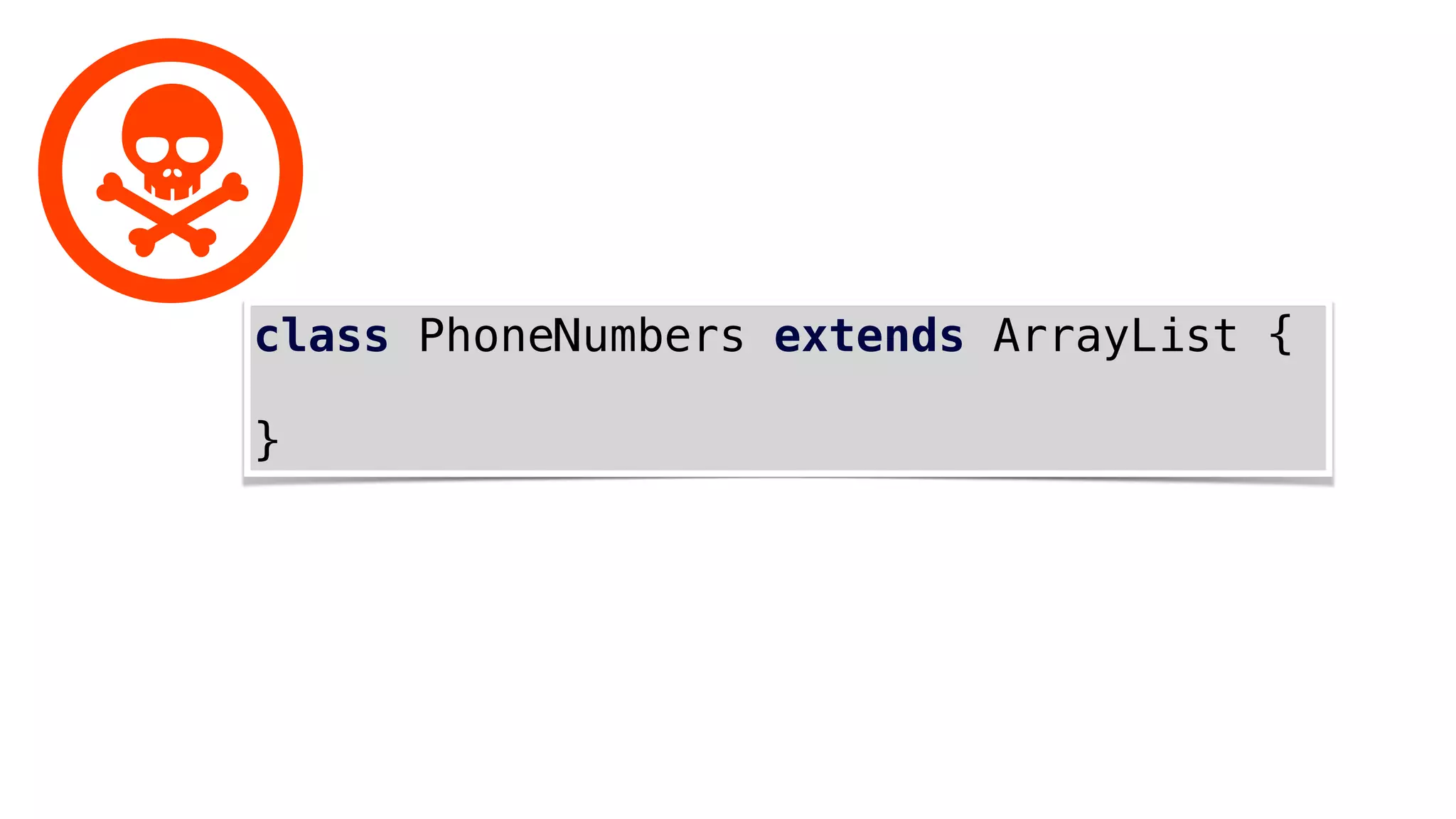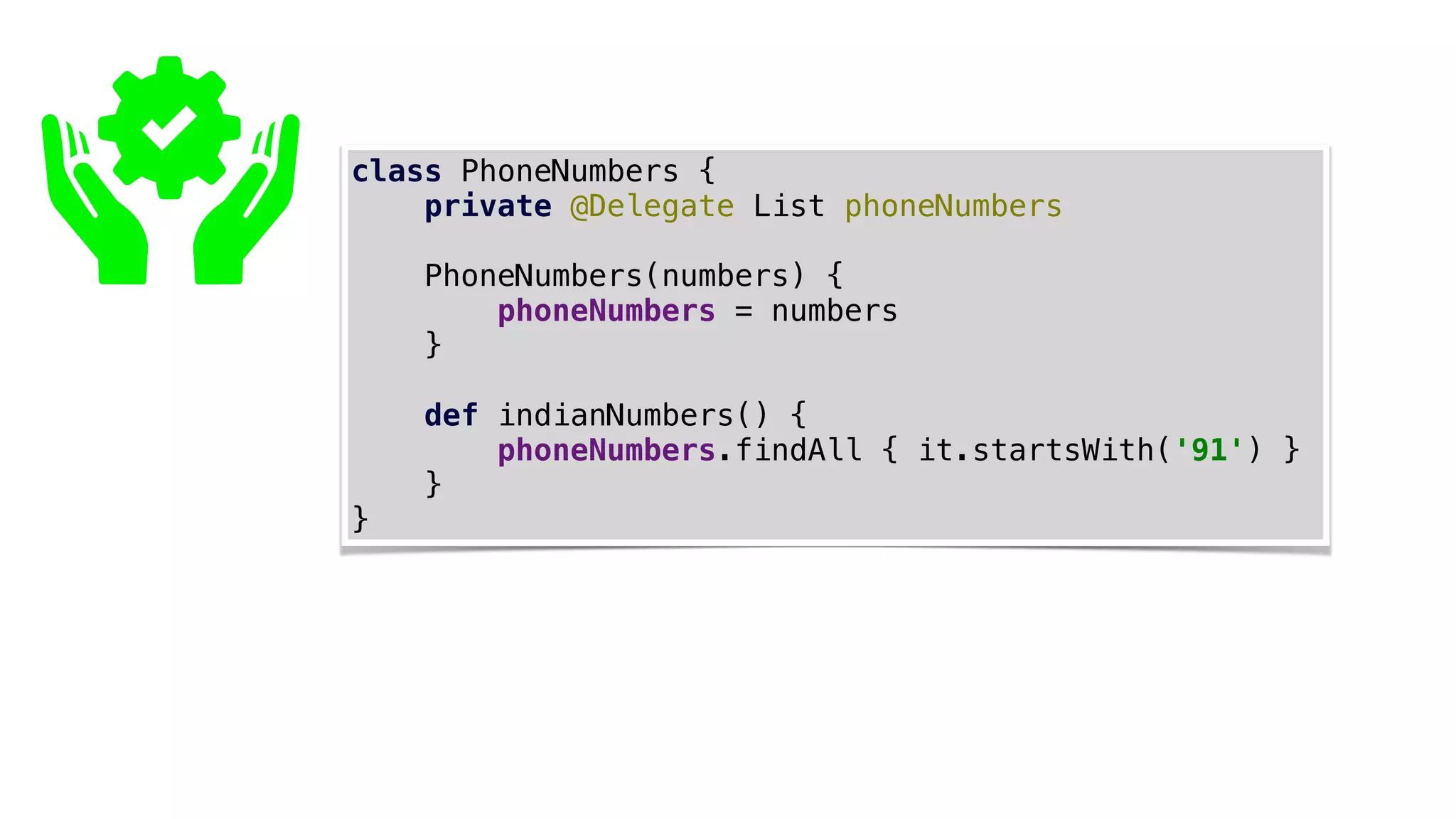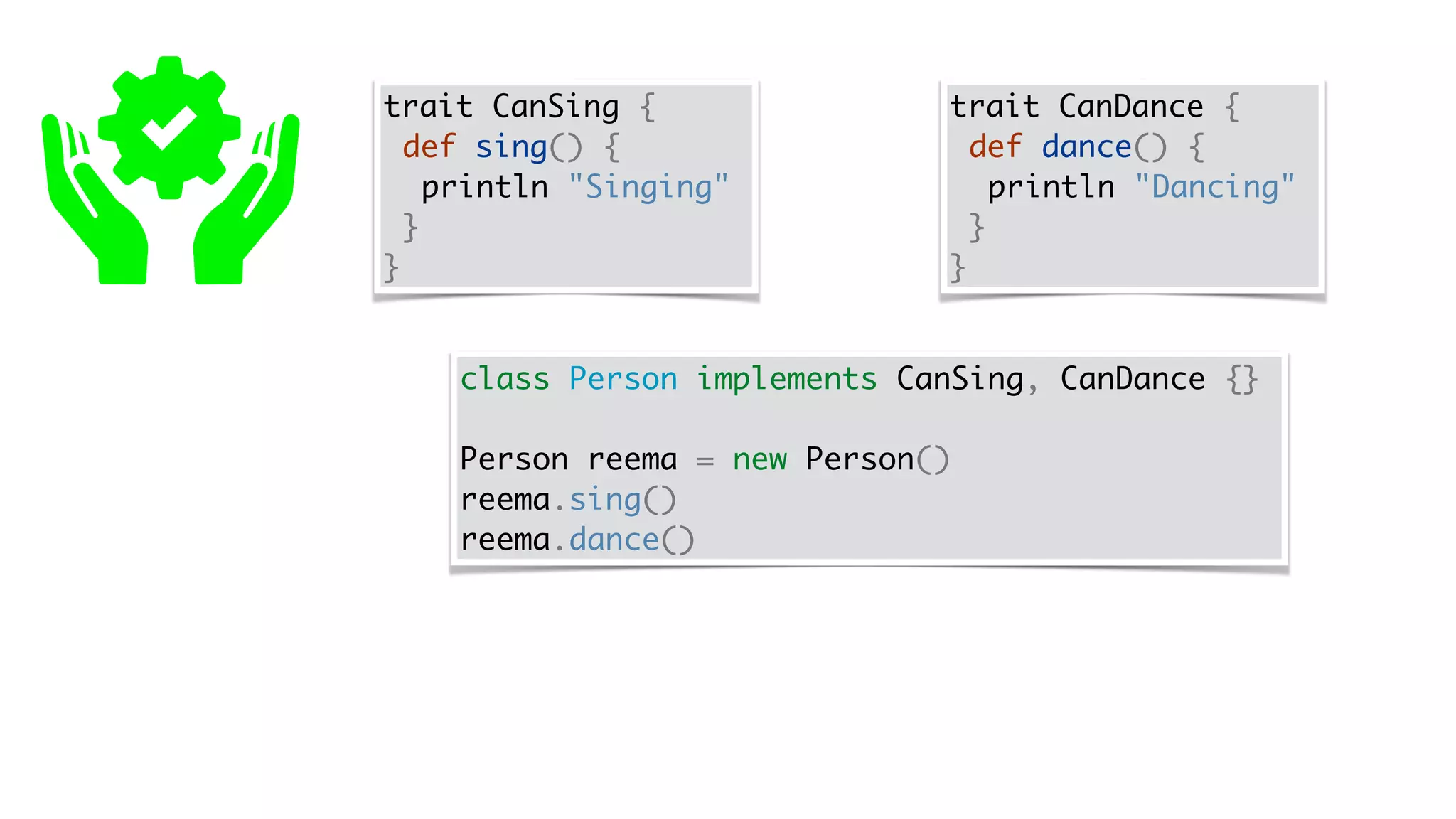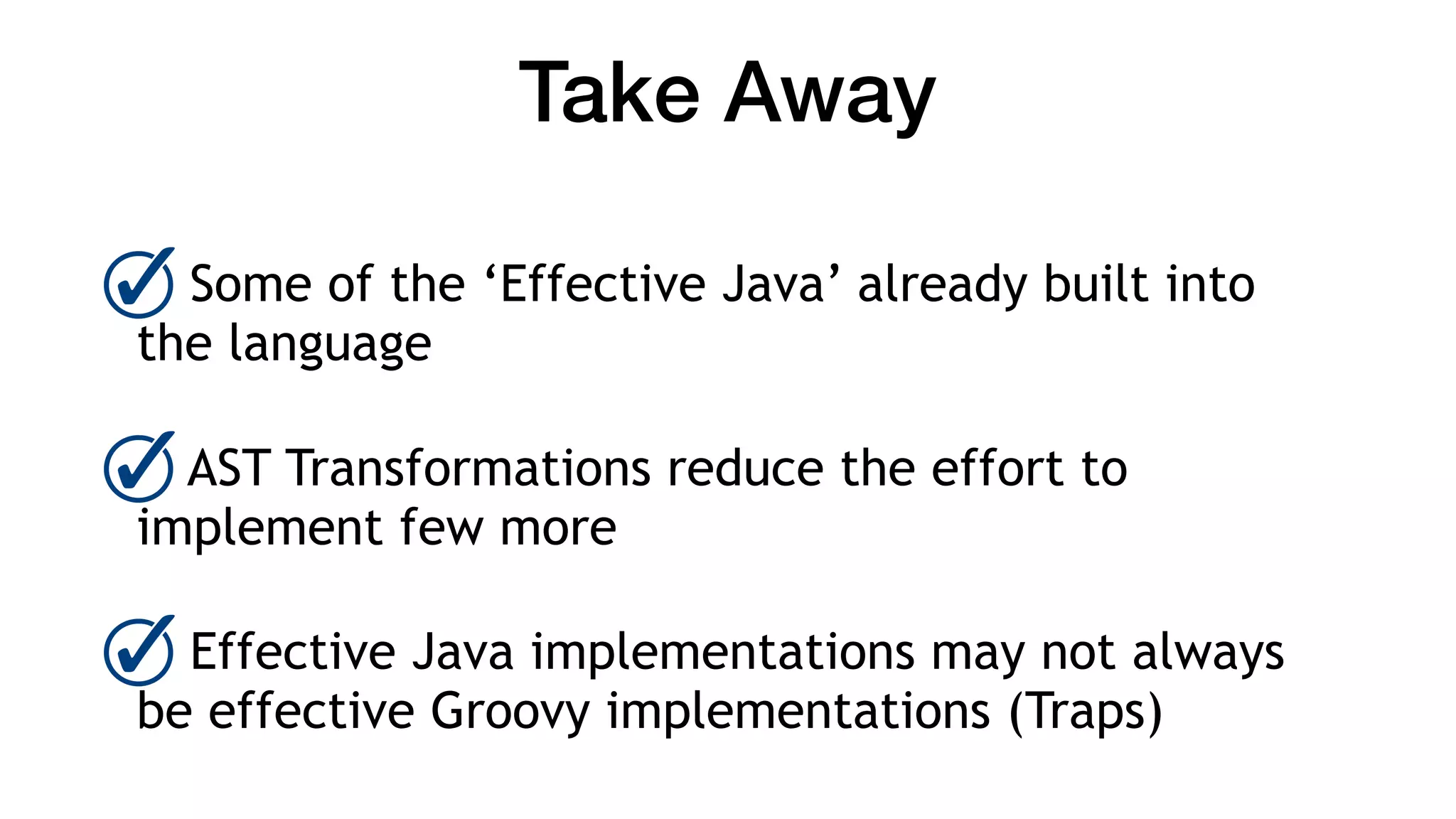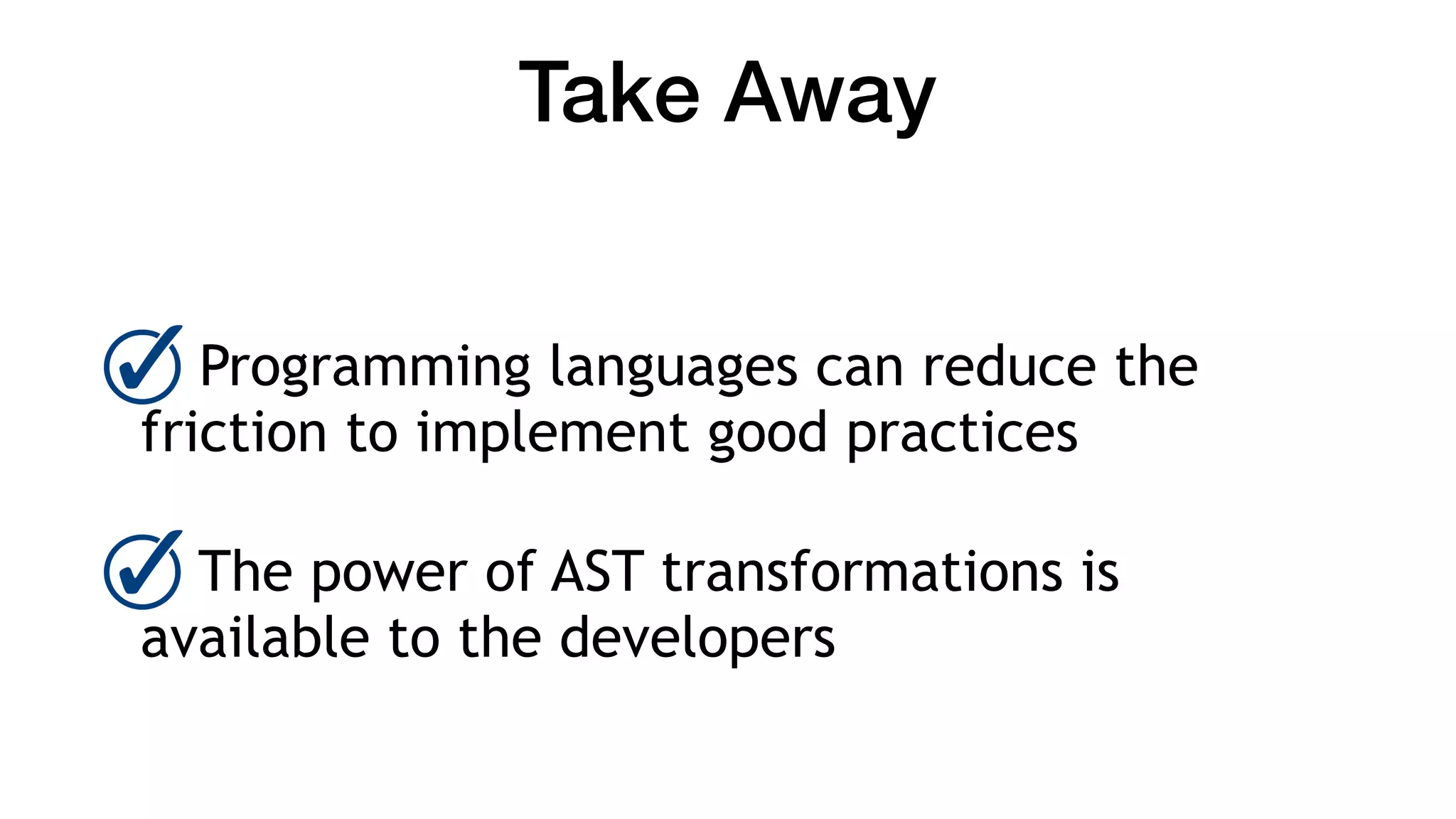This document provides a summary of key points from Effective Java in Groovy. It begins with an introduction and contact information for the author. It then discusses various tips and best practices from Effective Java, including how to implement them more easily in Groovy through features like annotations, closures, and AST transformations. Specific tips covered include immutable classes, singletons, Comparable, collections, and composition over inheritance. The document emphasizes that Groovy's dynamic nature can help simplify applying many of the patterns and avoid some of the "traps" of directly implementing Effective Java concepts in Java.
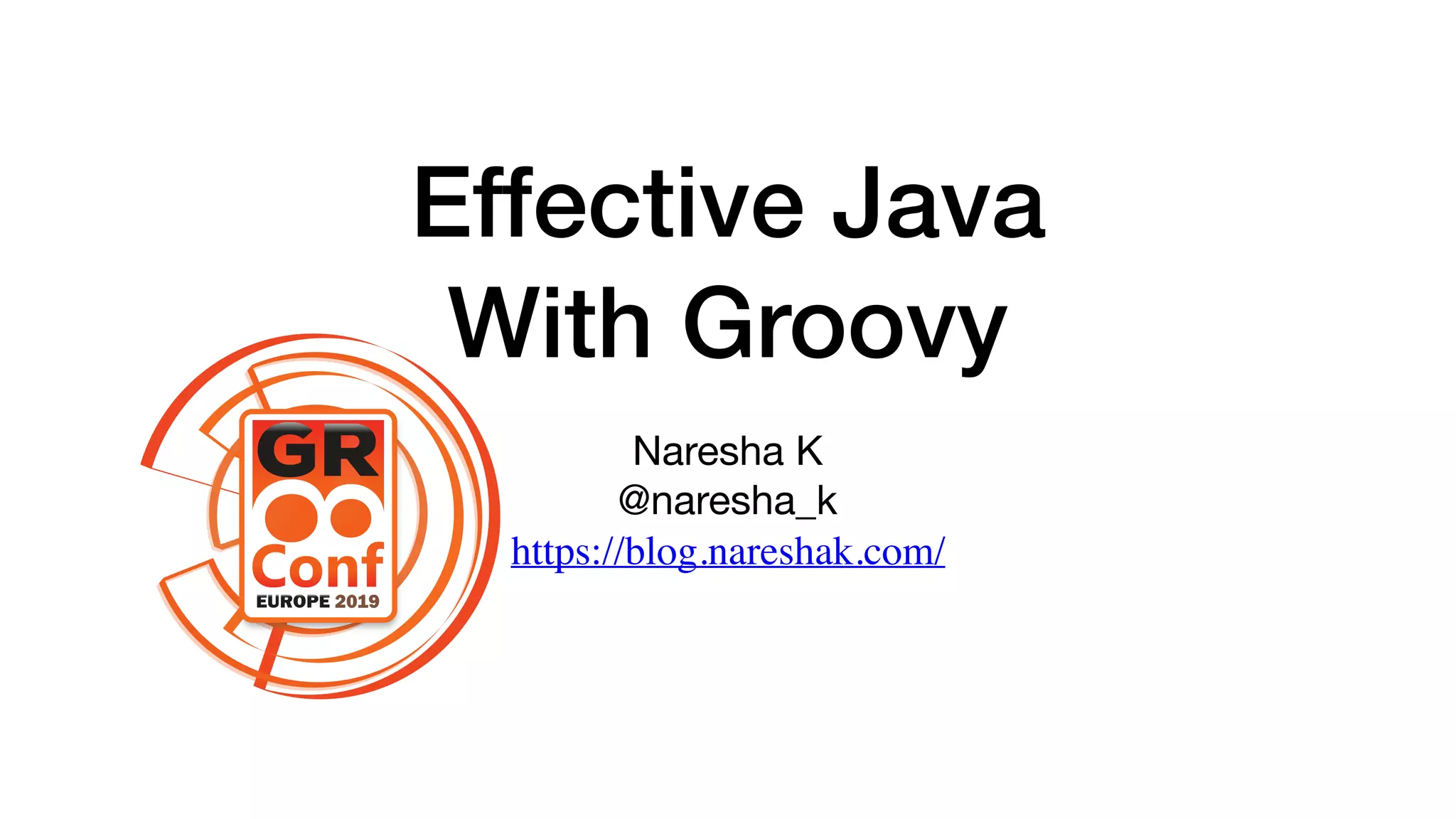



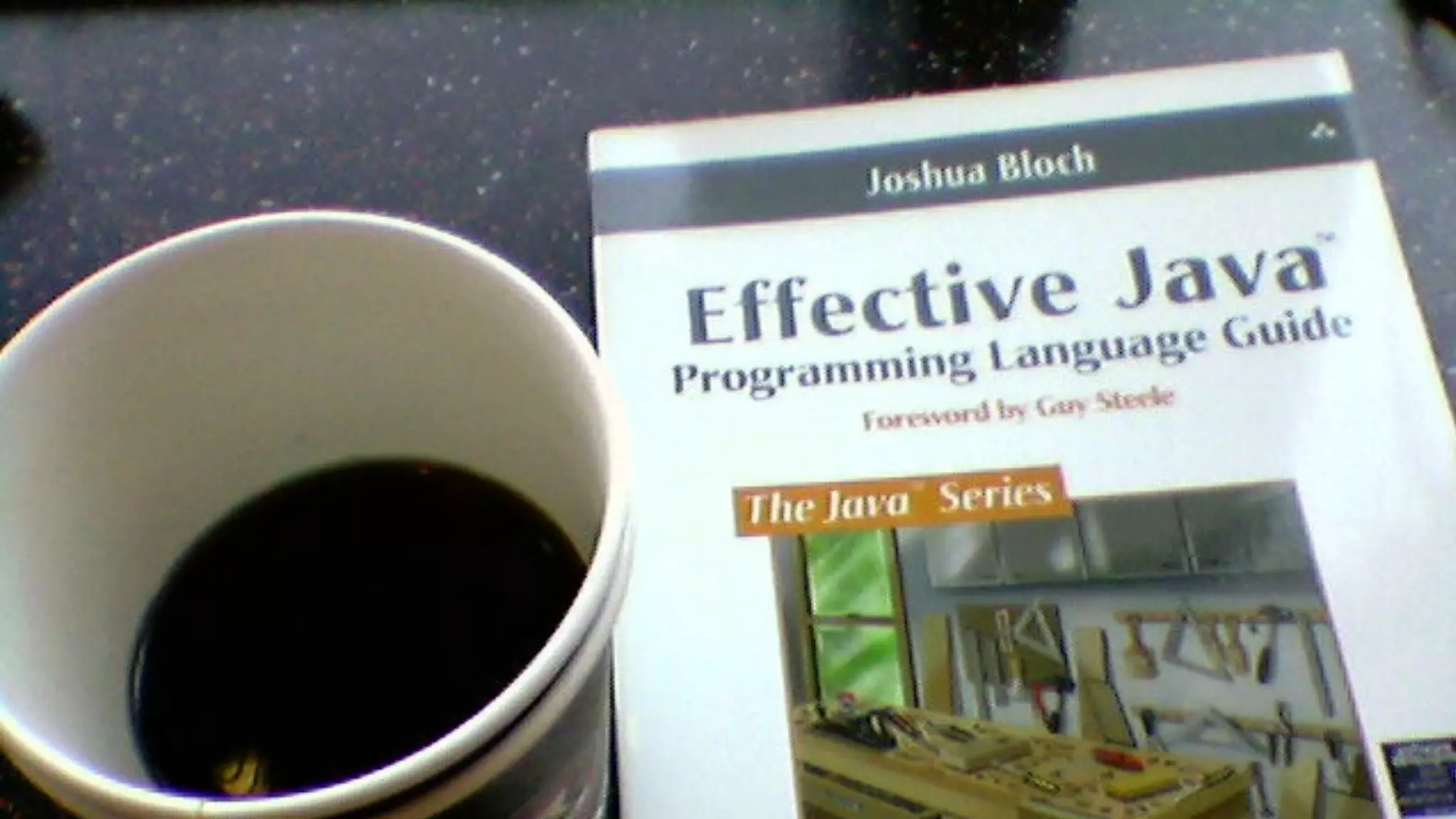

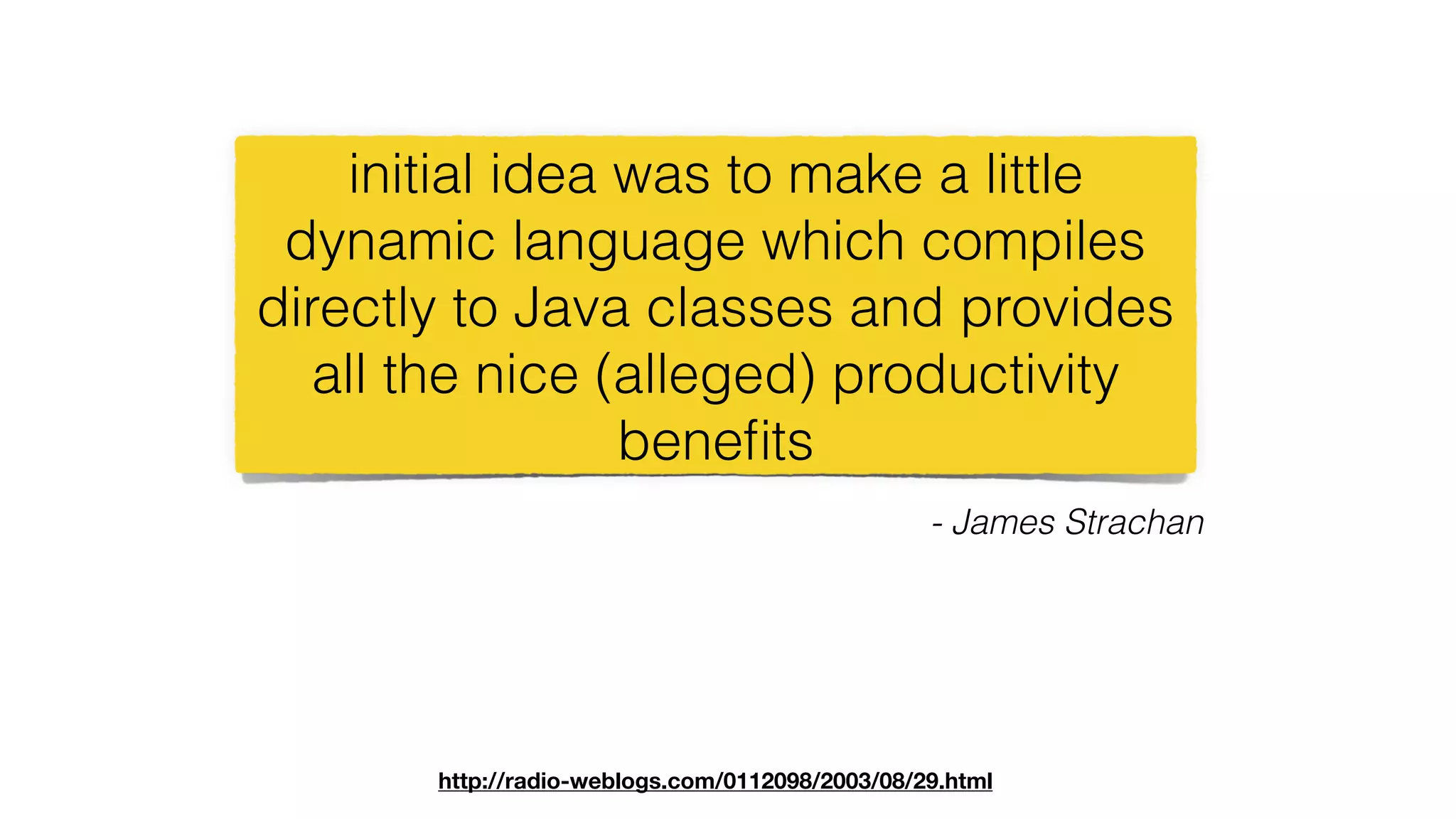


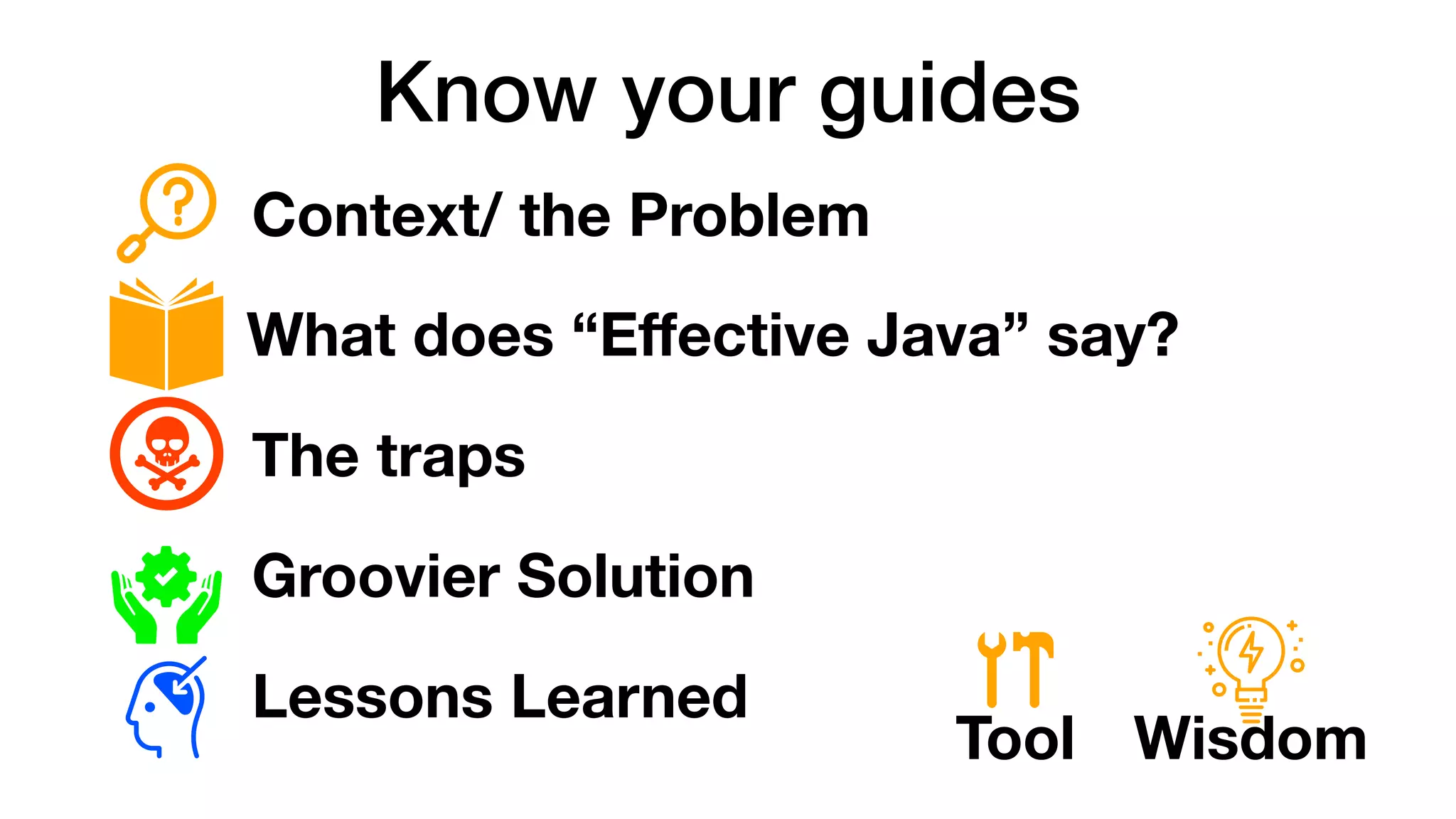

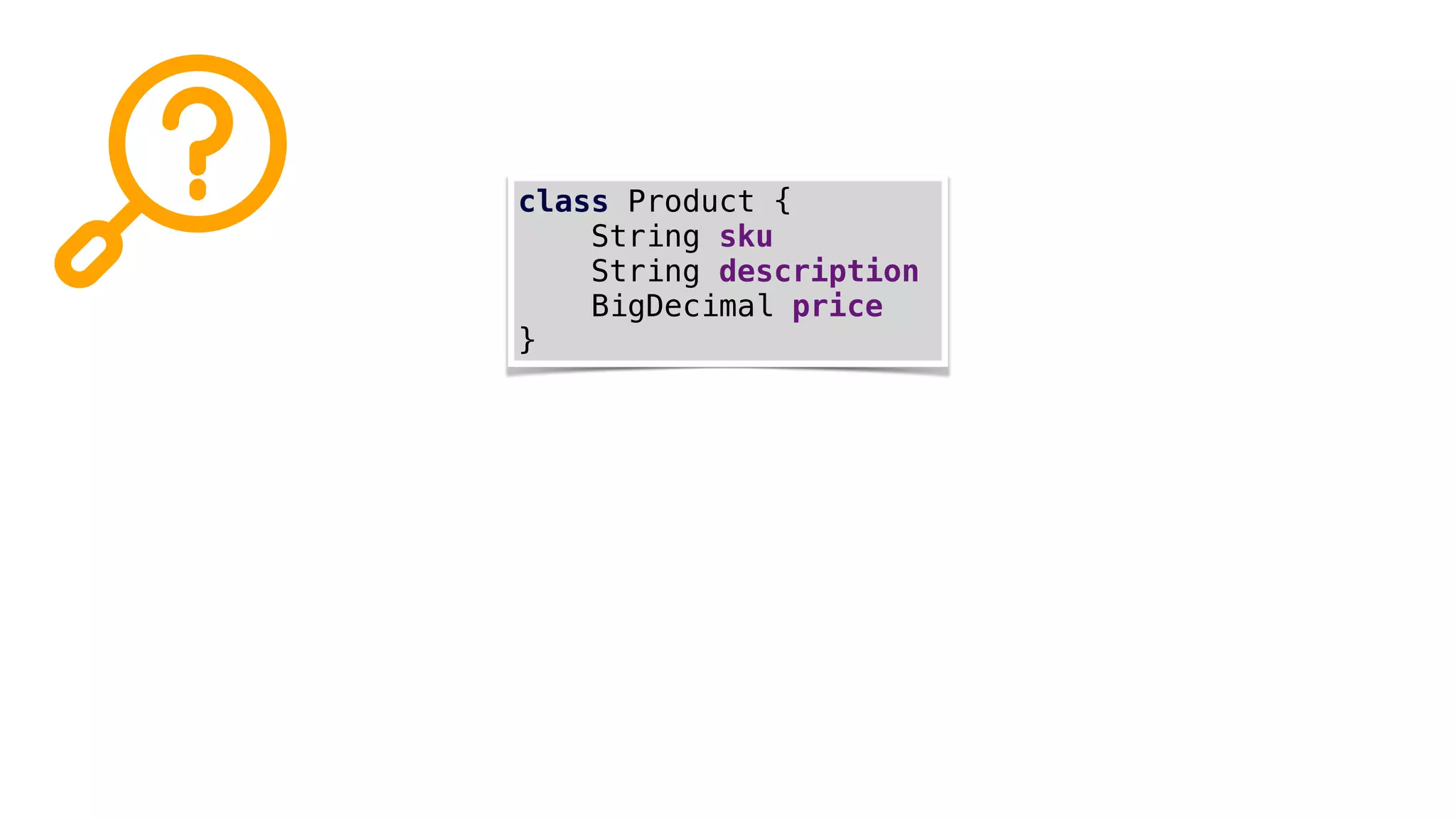
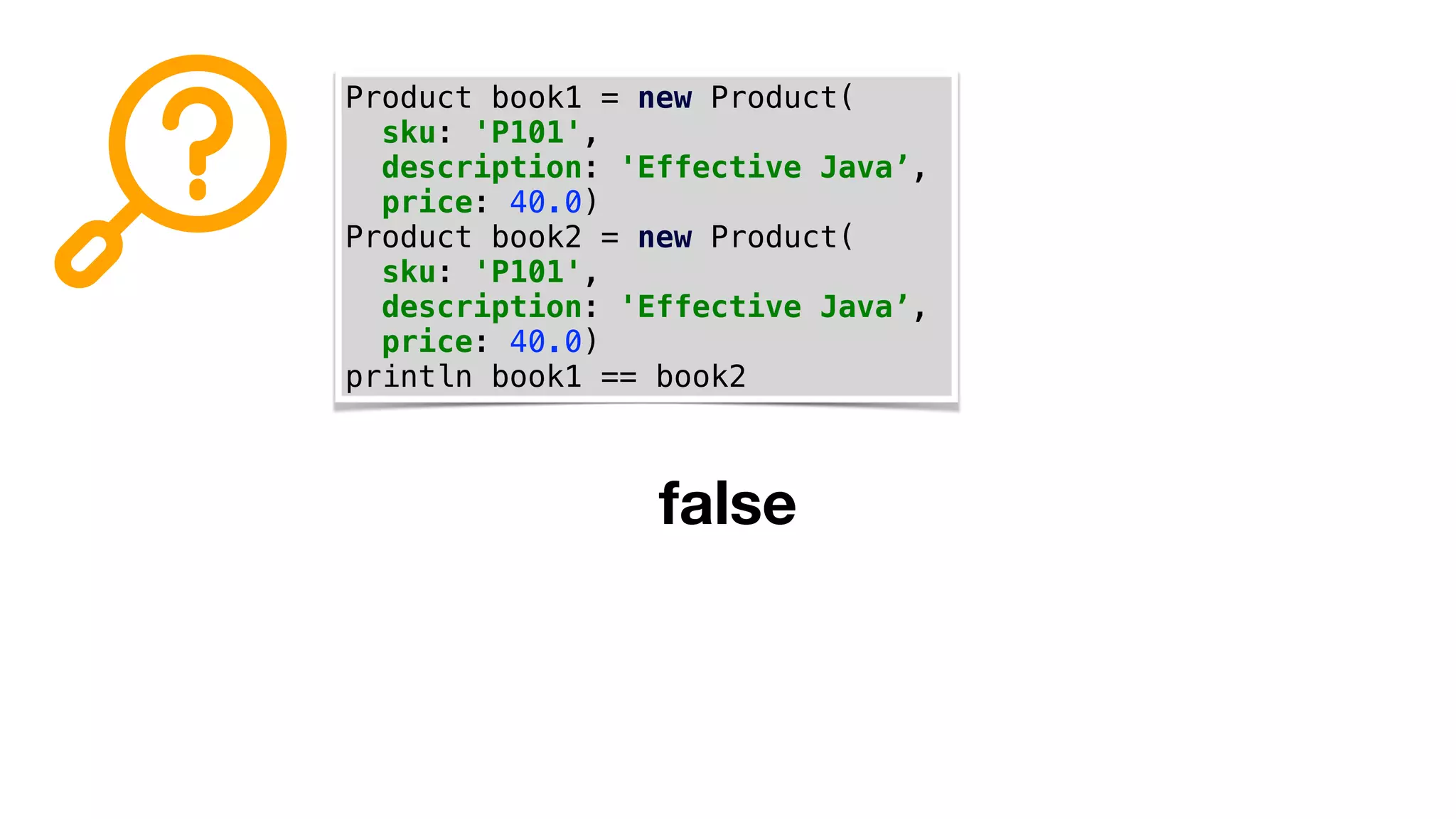
![Product book1 = new Product(
sku: 'P101',
description: 'Effective Java’,
price: 40.0)
Product book2 = new Product(
sku: 'P101',
description: 'Effective Java’,
price: 40.0)
def stock = [:]
stock[book1] = 100
println stock[book2]
null](https://image.slidesharecdn.com/gr8confeu2019effetivejavawithgroovy-190527135406/75/Effective-Java-with-Groovy-14-2048.jpg)
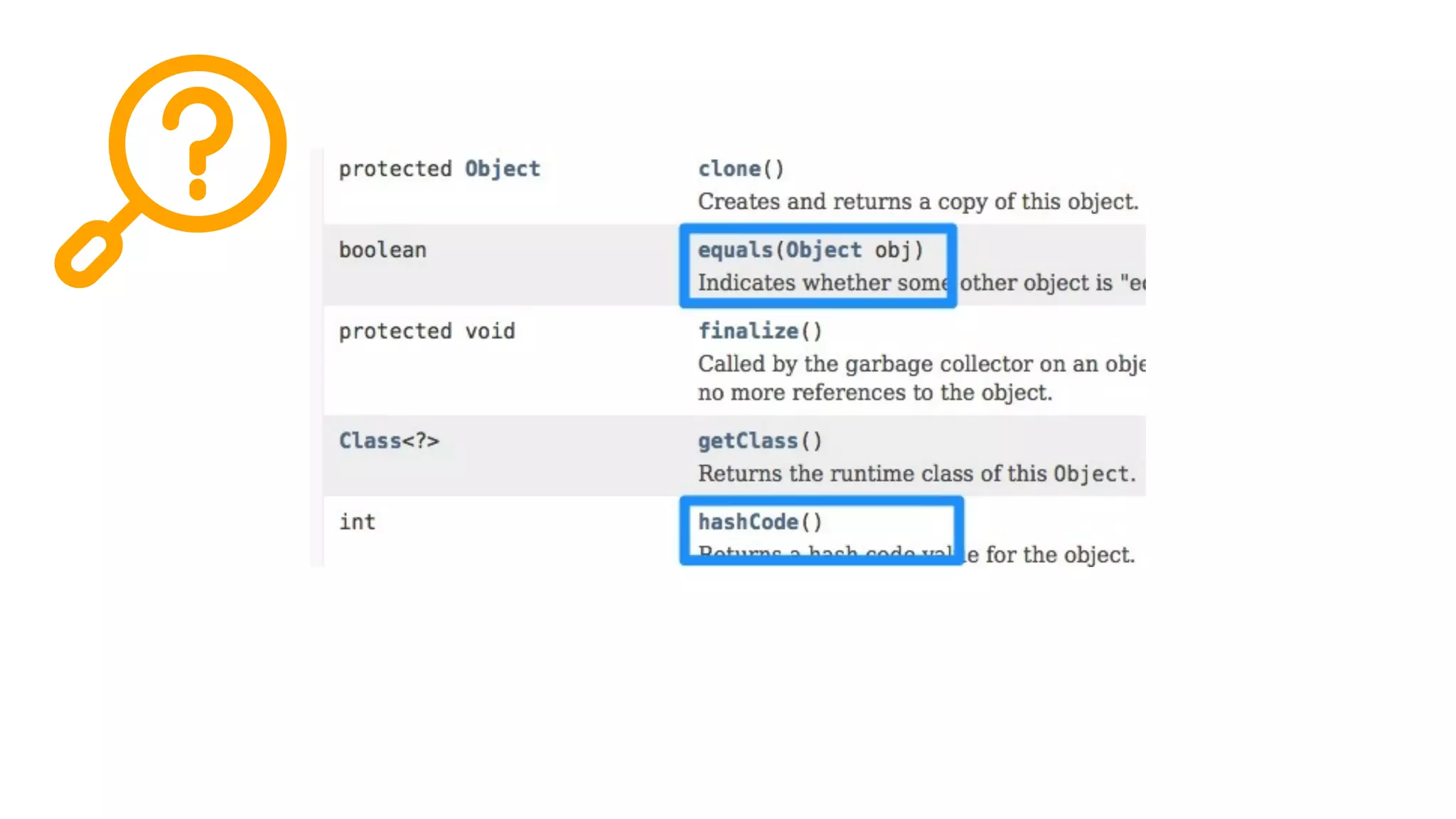
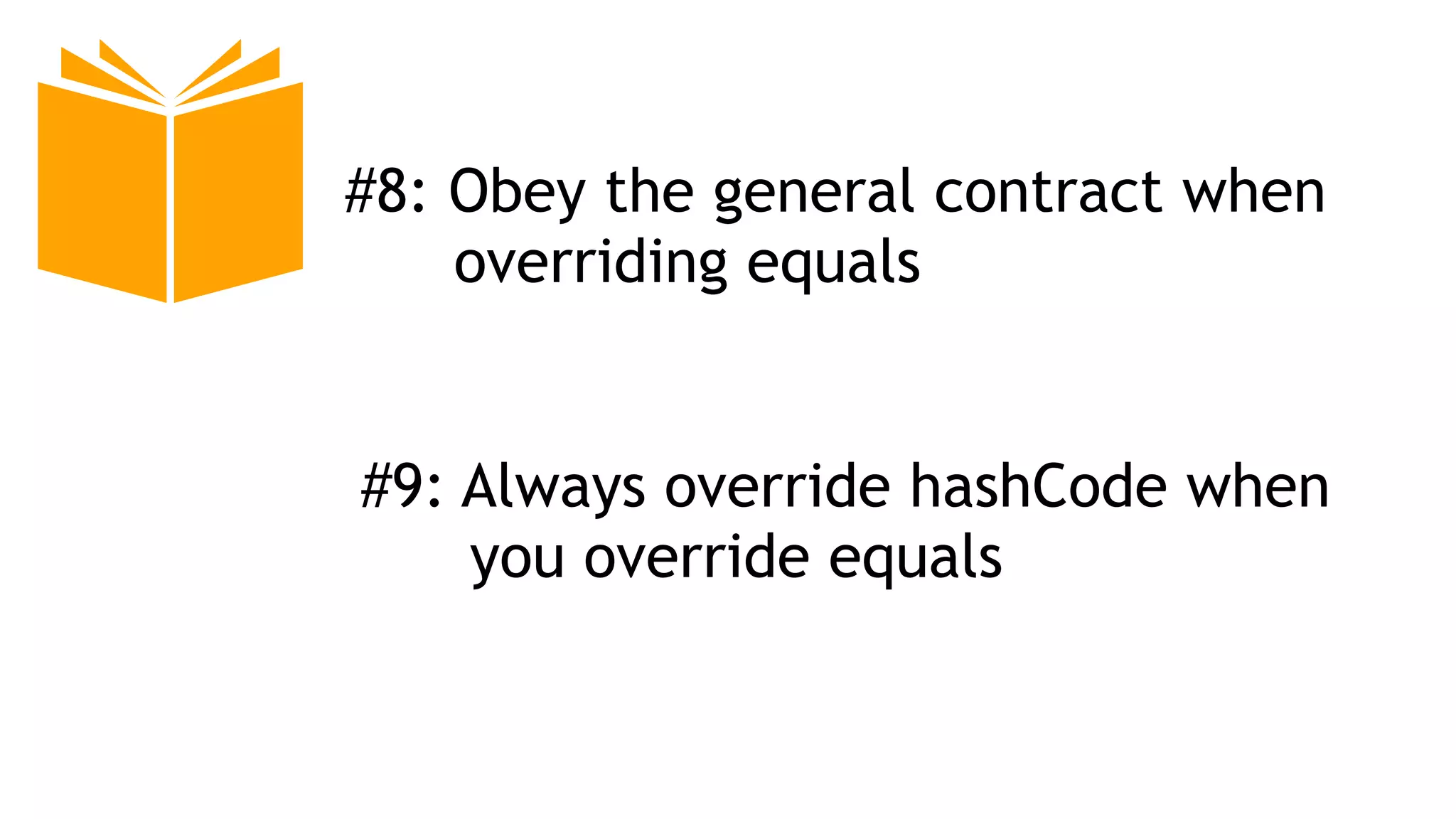
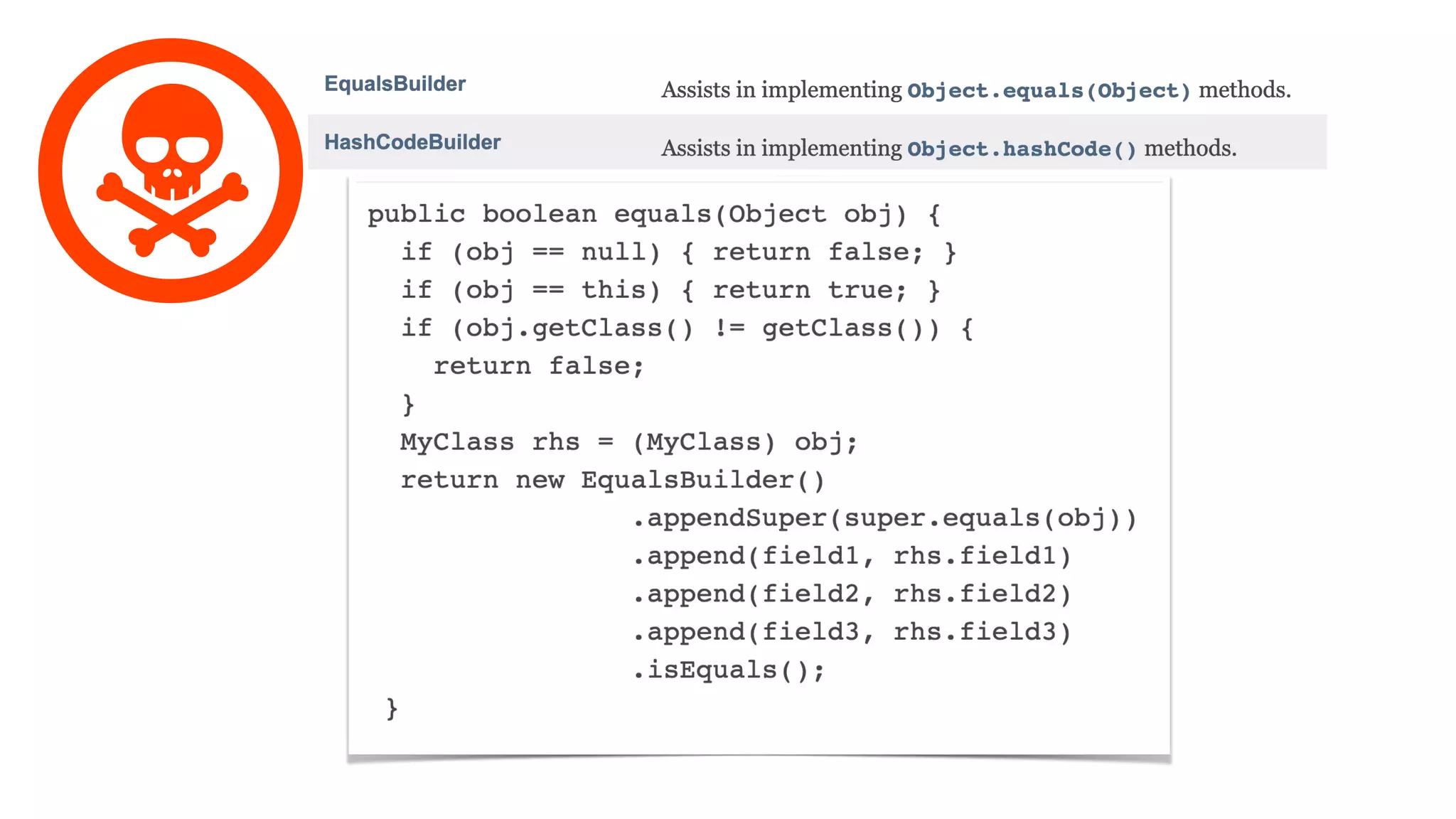
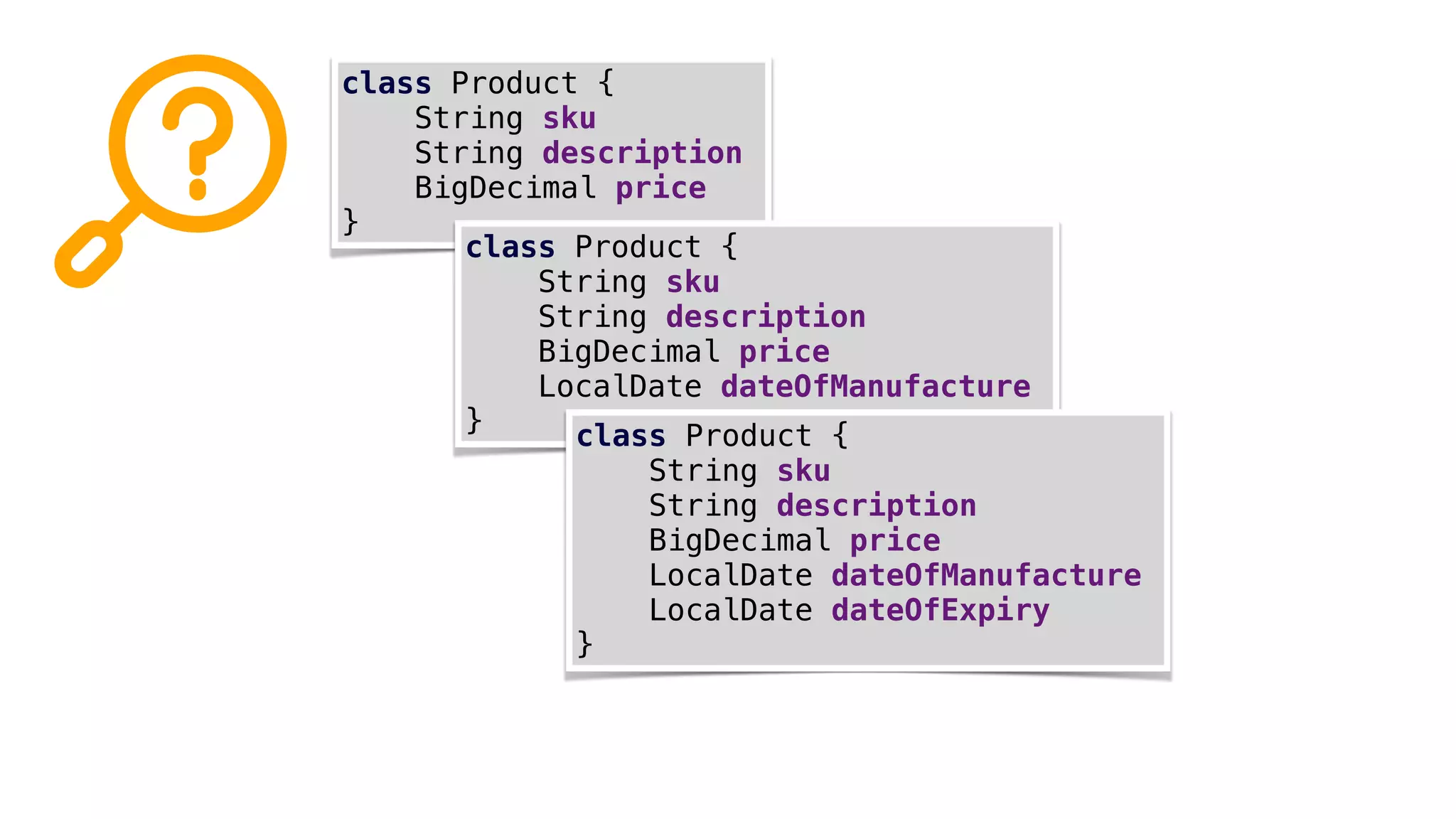
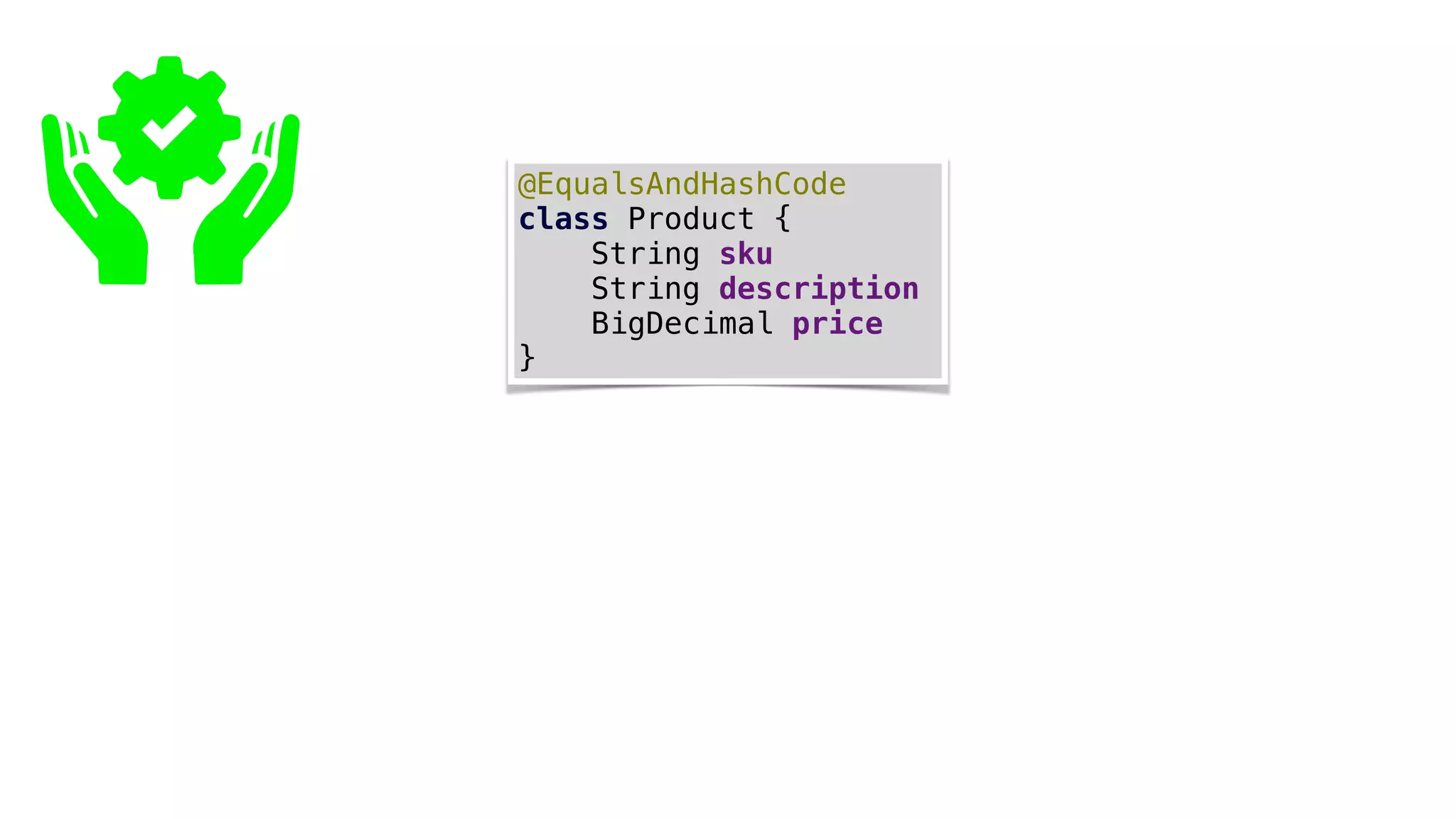
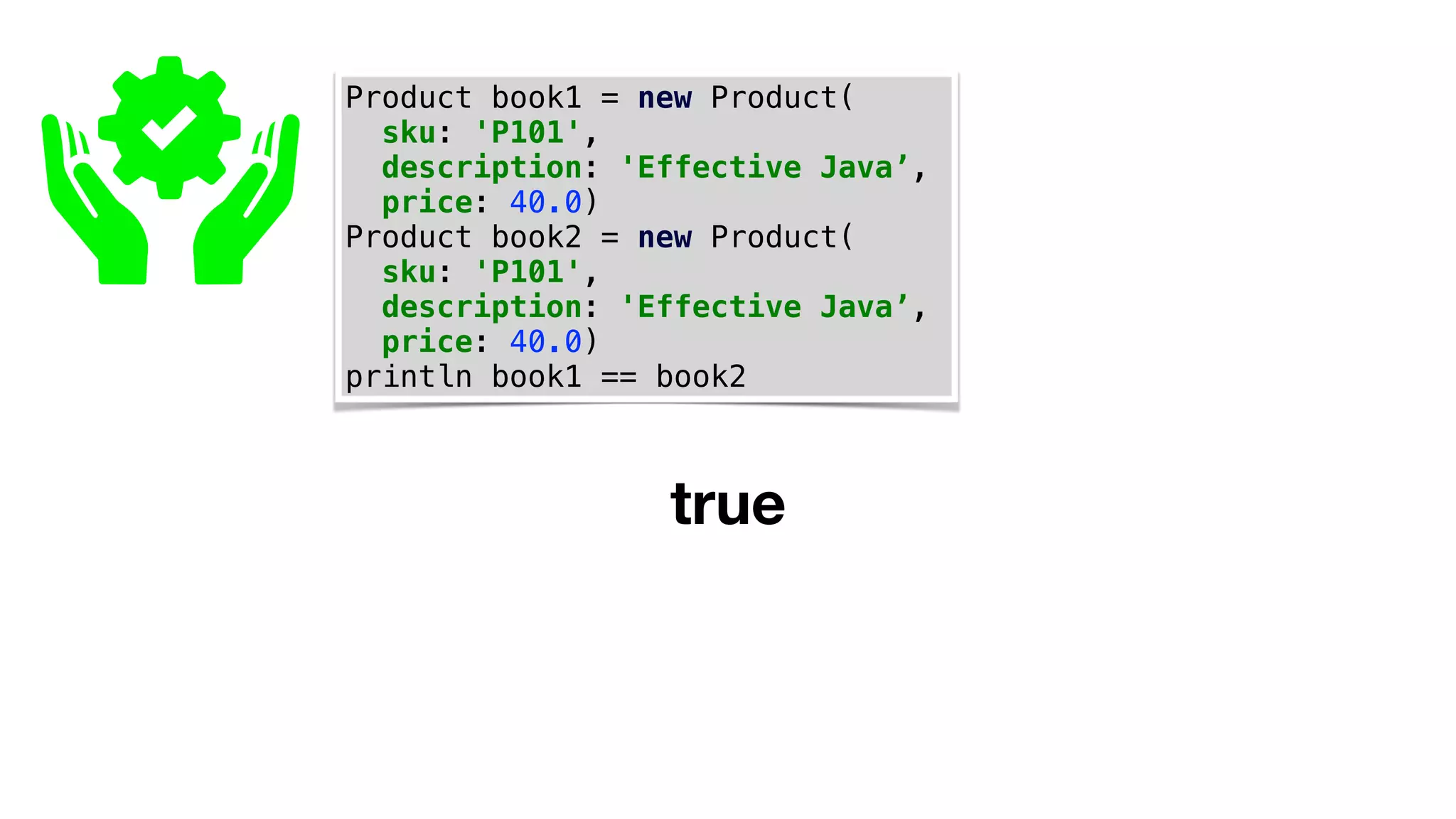
![Product book1 = new Product(
sku: 'P101',
description: 'Effective Java’,
price: 40.0)
Product book2 = new Product(
sku: 'P101',
description: 'Effective Java’,
price: 40.0)
def stock = [:]
stock[book1] = 100
println stock[book2]
100](https://image.slidesharecdn.com/gr8confeu2019effetivejavawithgroovy-190527135406/75/Effective-Java-with-Groovy-21-2048.jpg)
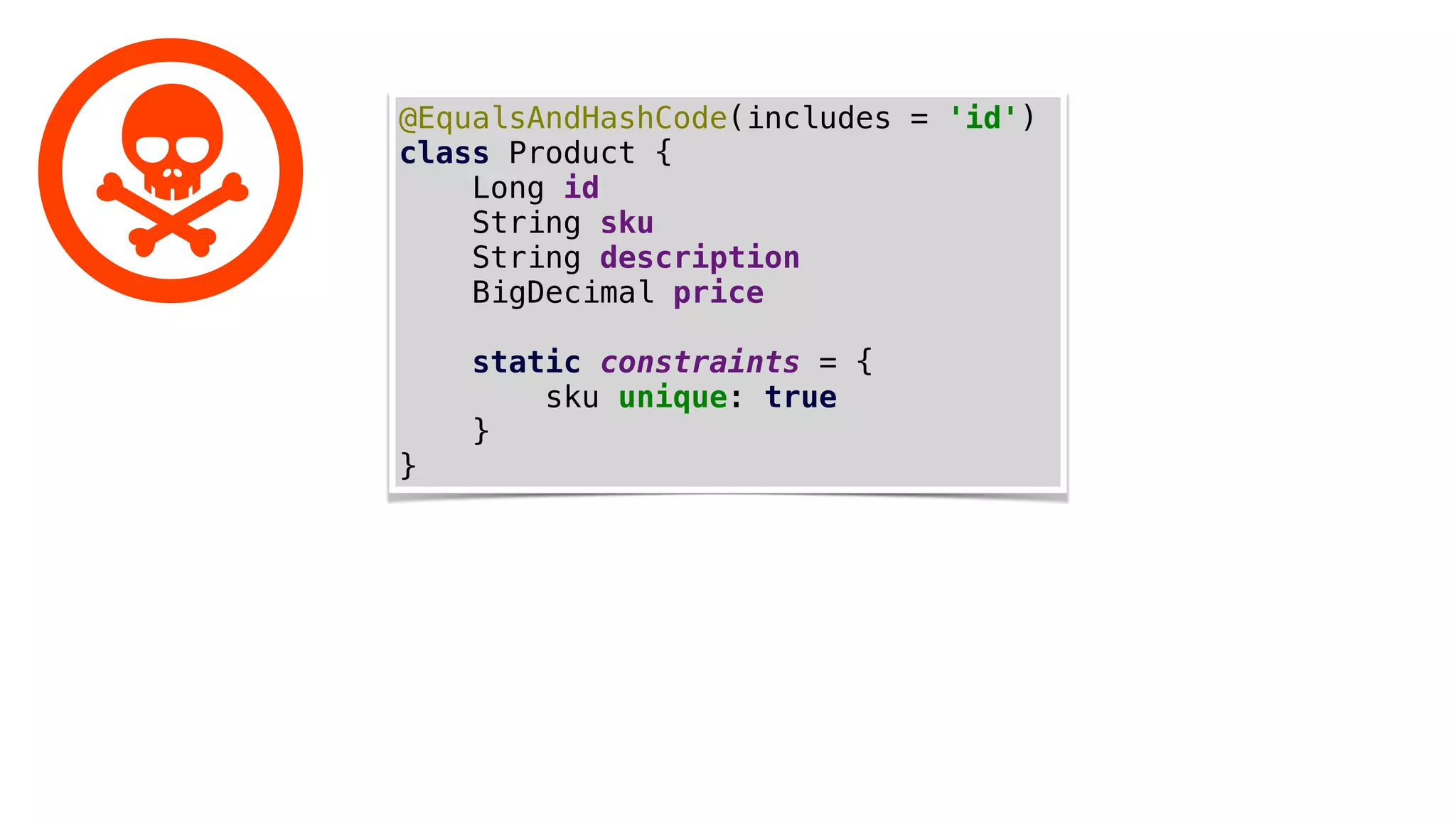
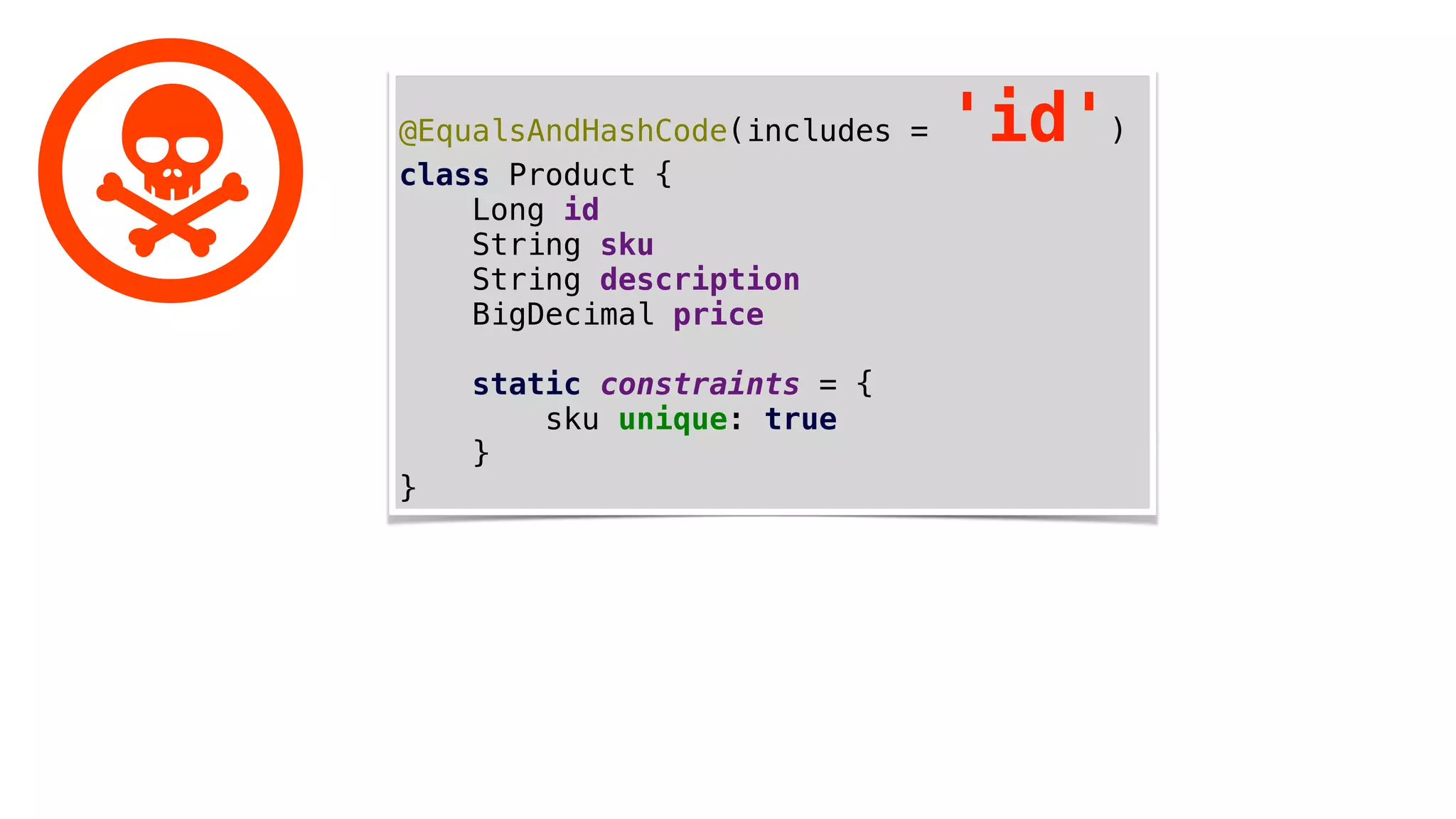
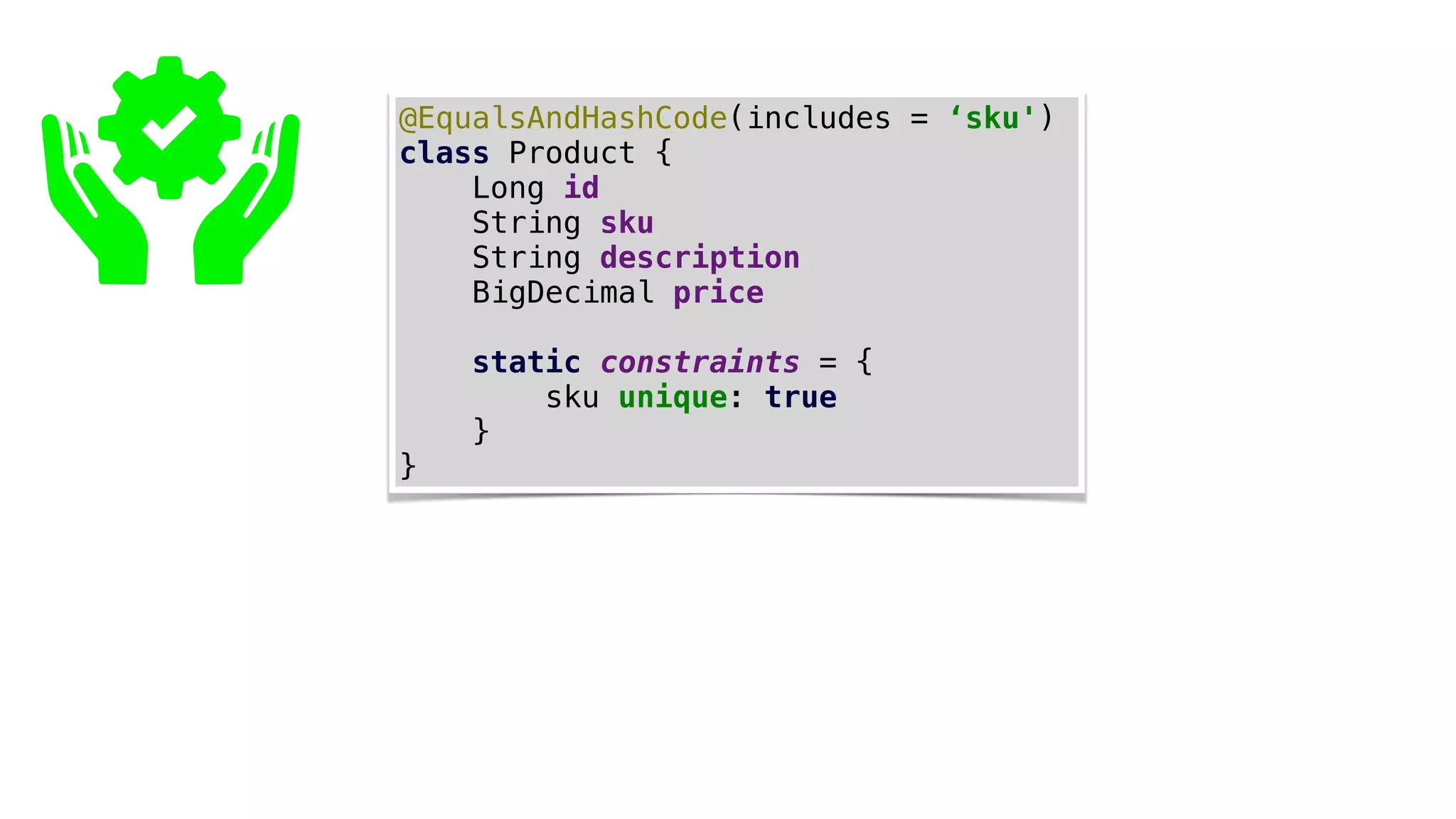
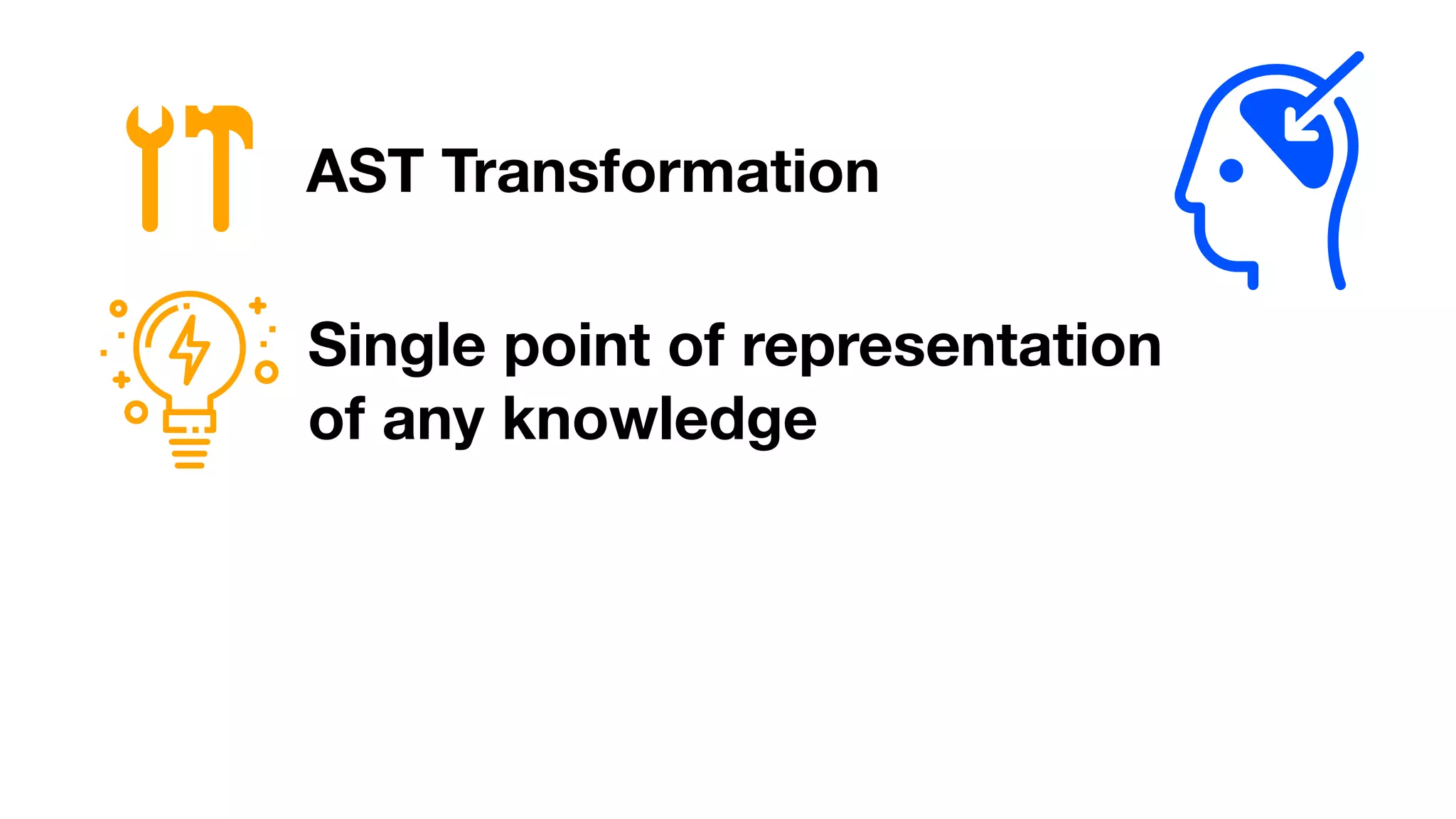


![def numbers = [10, 20, 30, 40]
def sum = 0
for(int number in numbers){
sum += number
}
println "Sum: " + sum](https://image.slidesharecdn.com/gr8confeu2019effetivejavawithgroovy-190527135406/75/Effective-Java-with-Groovy-28-2048.jpg)
![numbers.each { number ->
println number
}
println numbers.collect { number ->
number * 2
}
println numbers.inject(0,
{ result, number -> result + number }
)
10
20
30
40
[20, 40, 60, 80]
100](https://image.slidesharecdn.com/gr8confeu2019effetivejavawithgroovy-190527135406/75/Effective-Java-with-Groovy-29-2048.jpg)
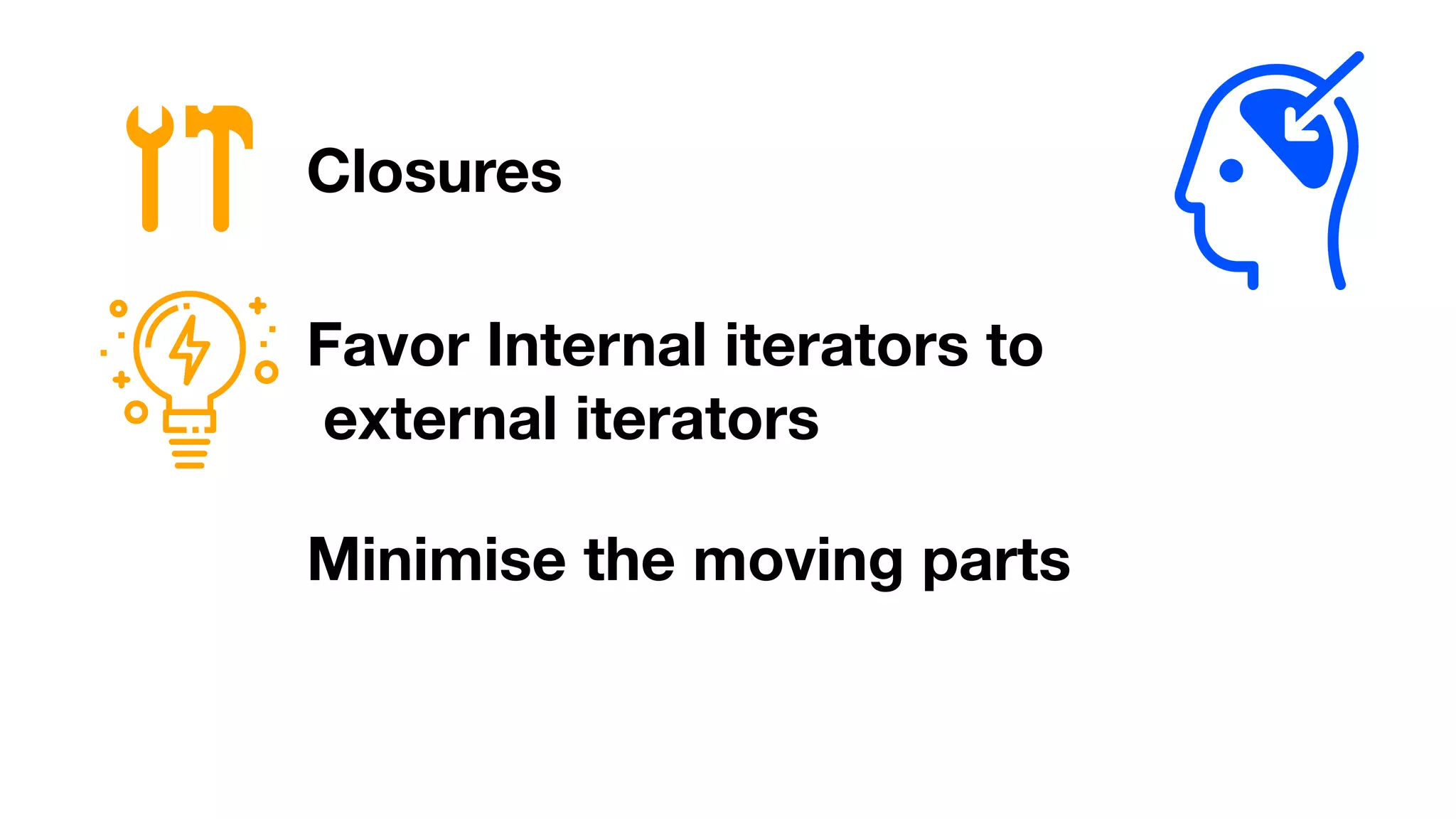
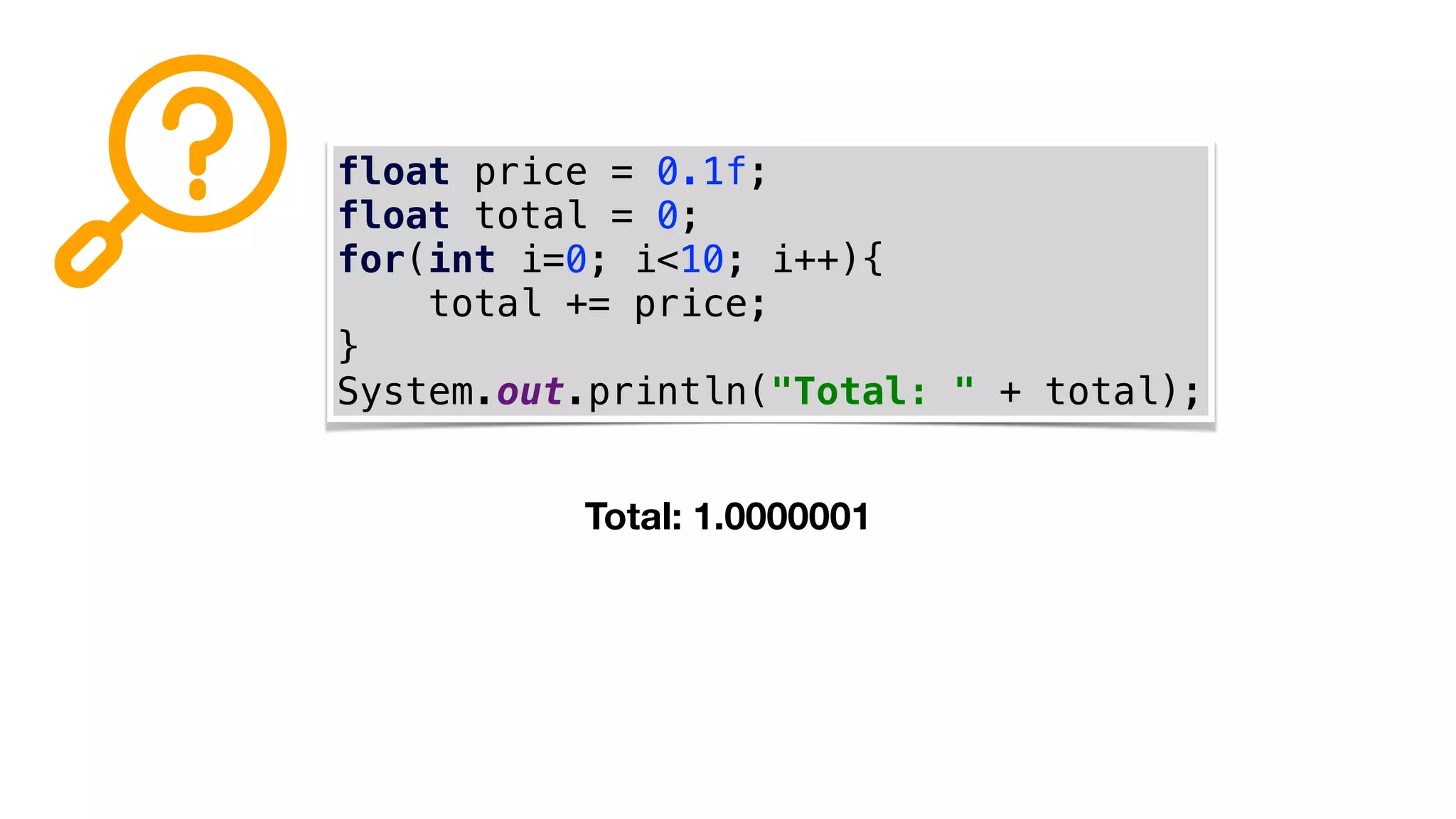
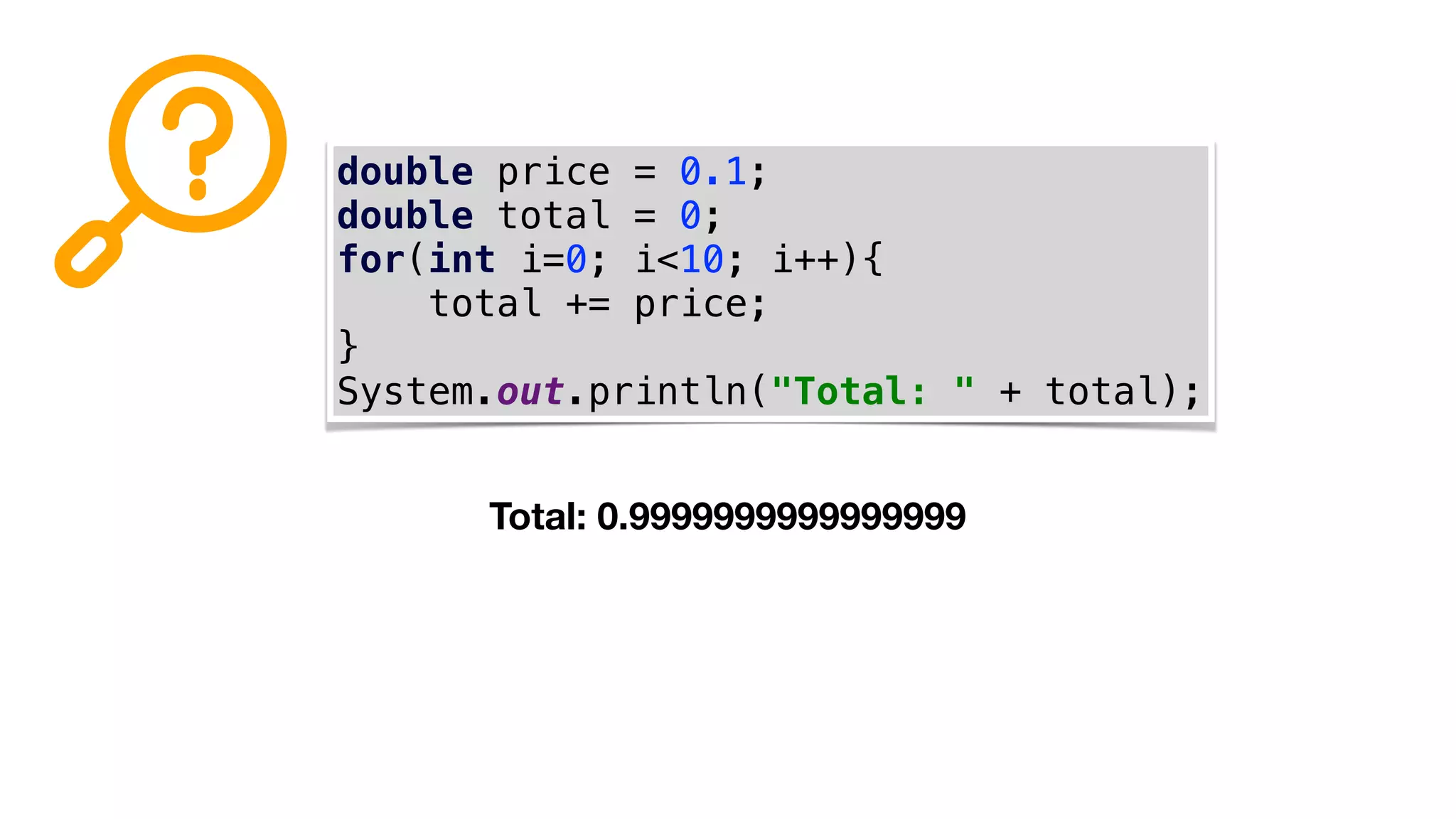


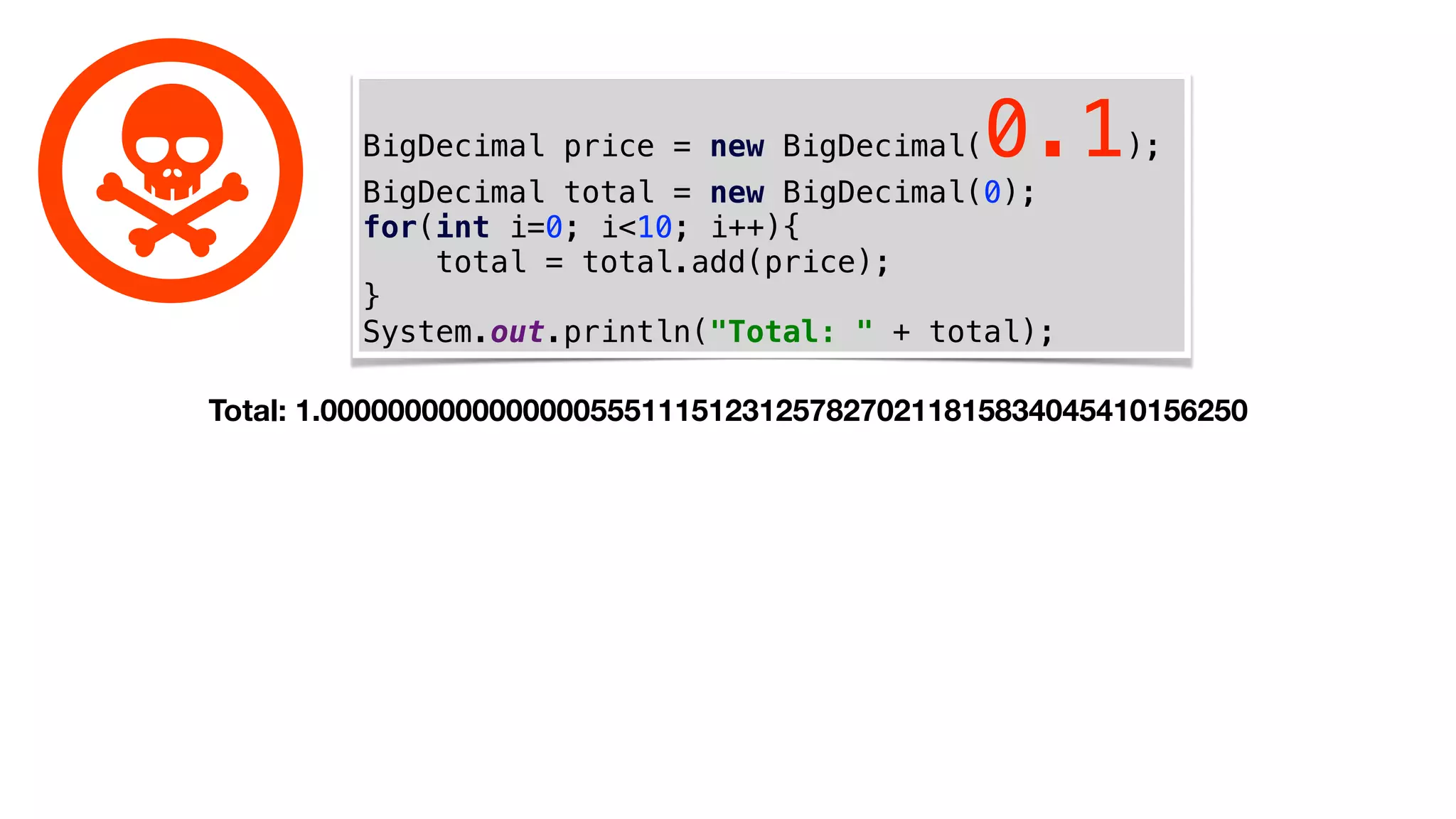
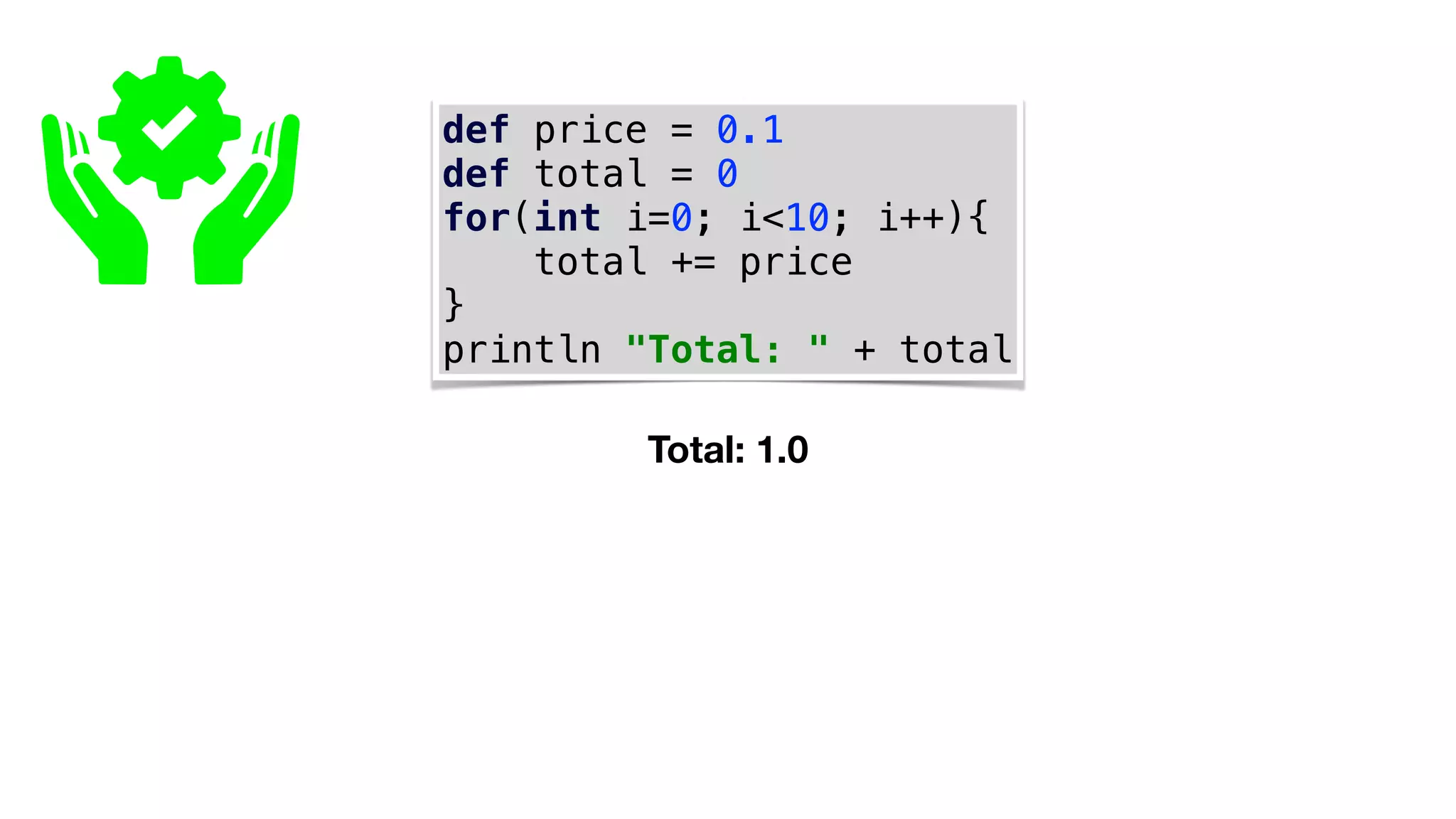
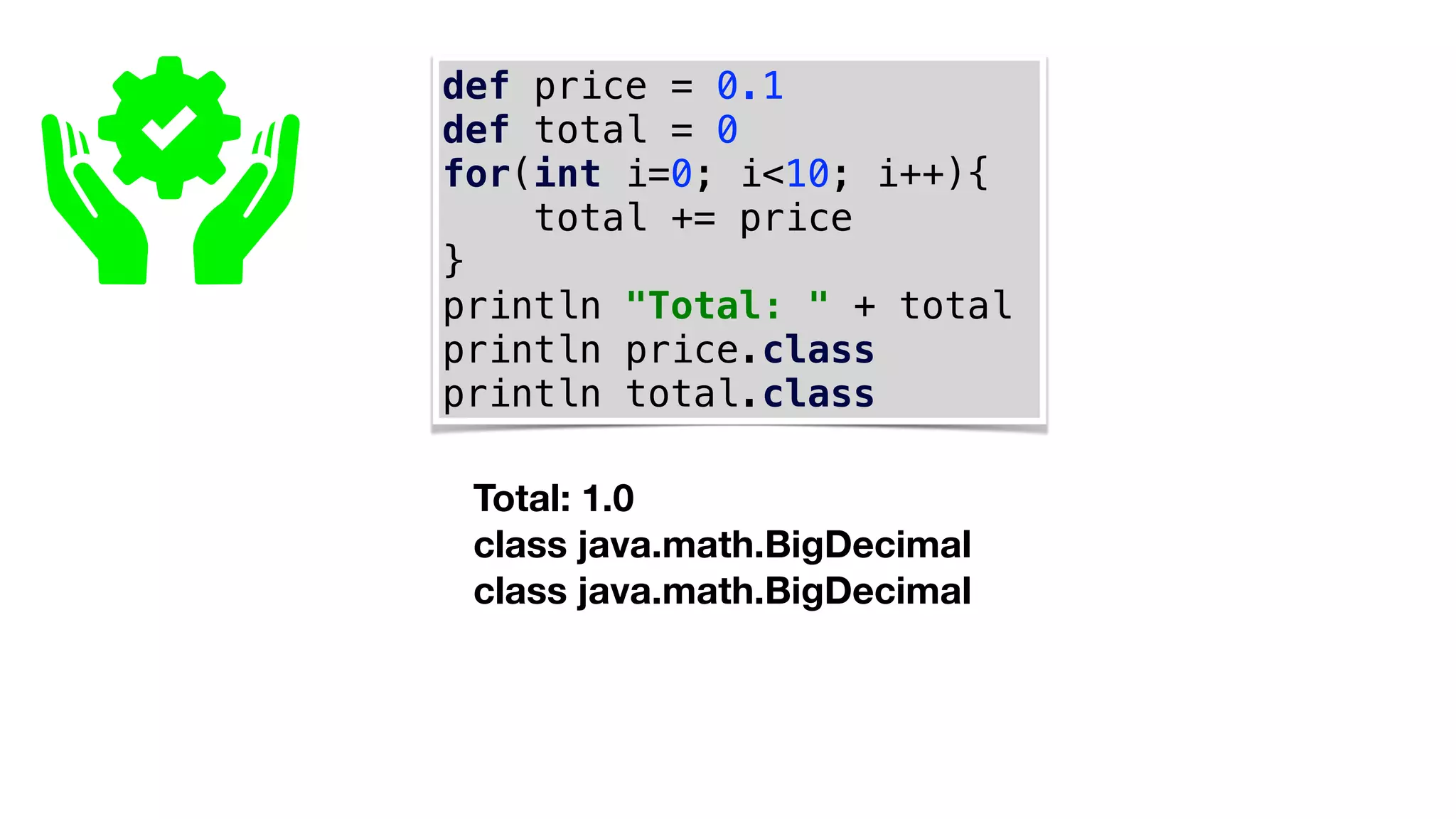
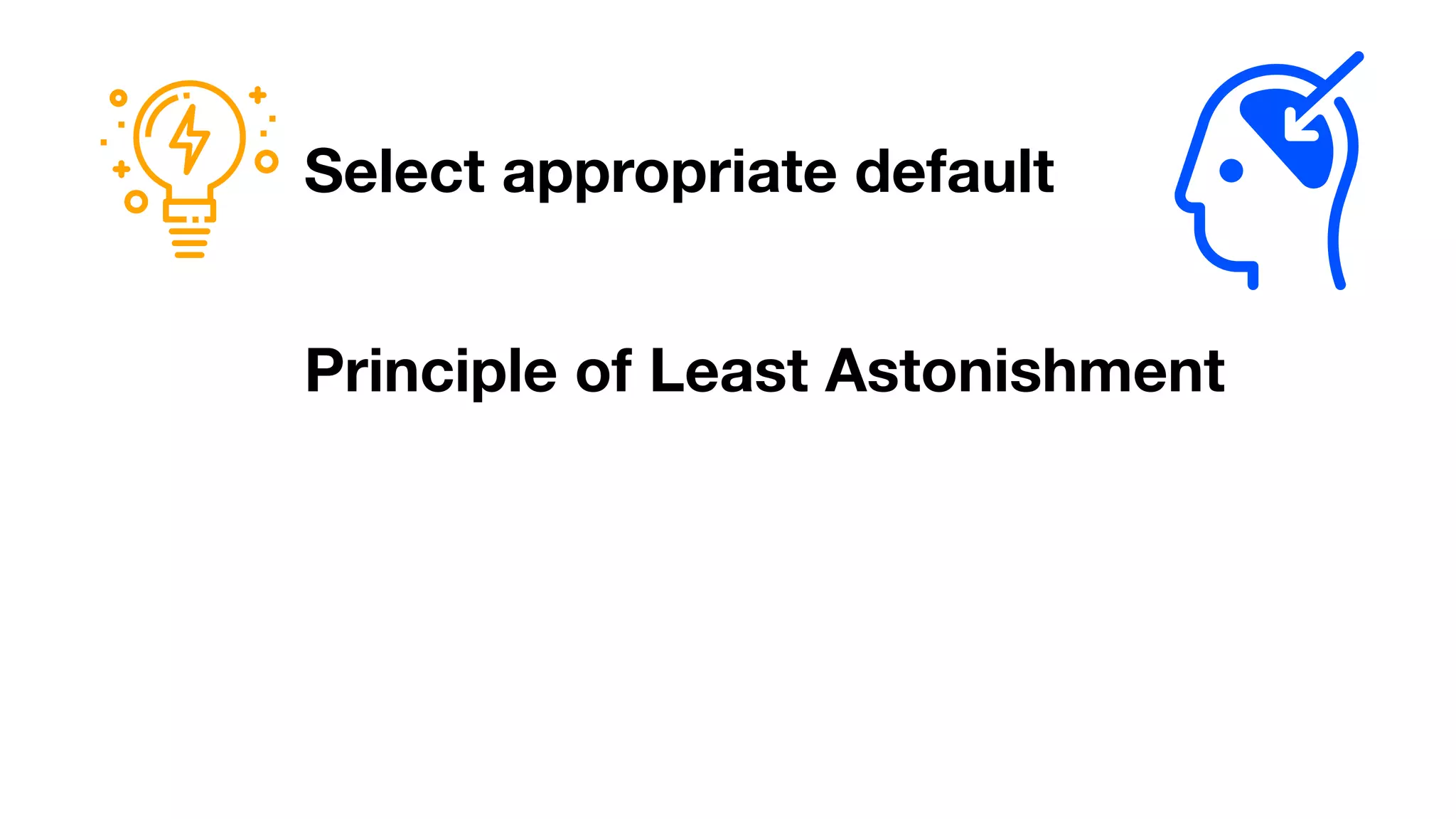
![Bringing in Order
class Person {
String name
int age
}
def geeks = [
new Person(name: 'Raj', age: 30),
new Person(name: 'Leonard', age: 35),
new Person(name: 'Sheldon', age: 32),
new Person(name: 'Sheldon', age: 25),
new Person(name: 'Penny', age: 35)
]](https://image.slidesharecdn.com/gr8confeu2019effetivejavawithgroovy-190527135406/75/Effective-Java-with-Groovy-39-2048.jpg)

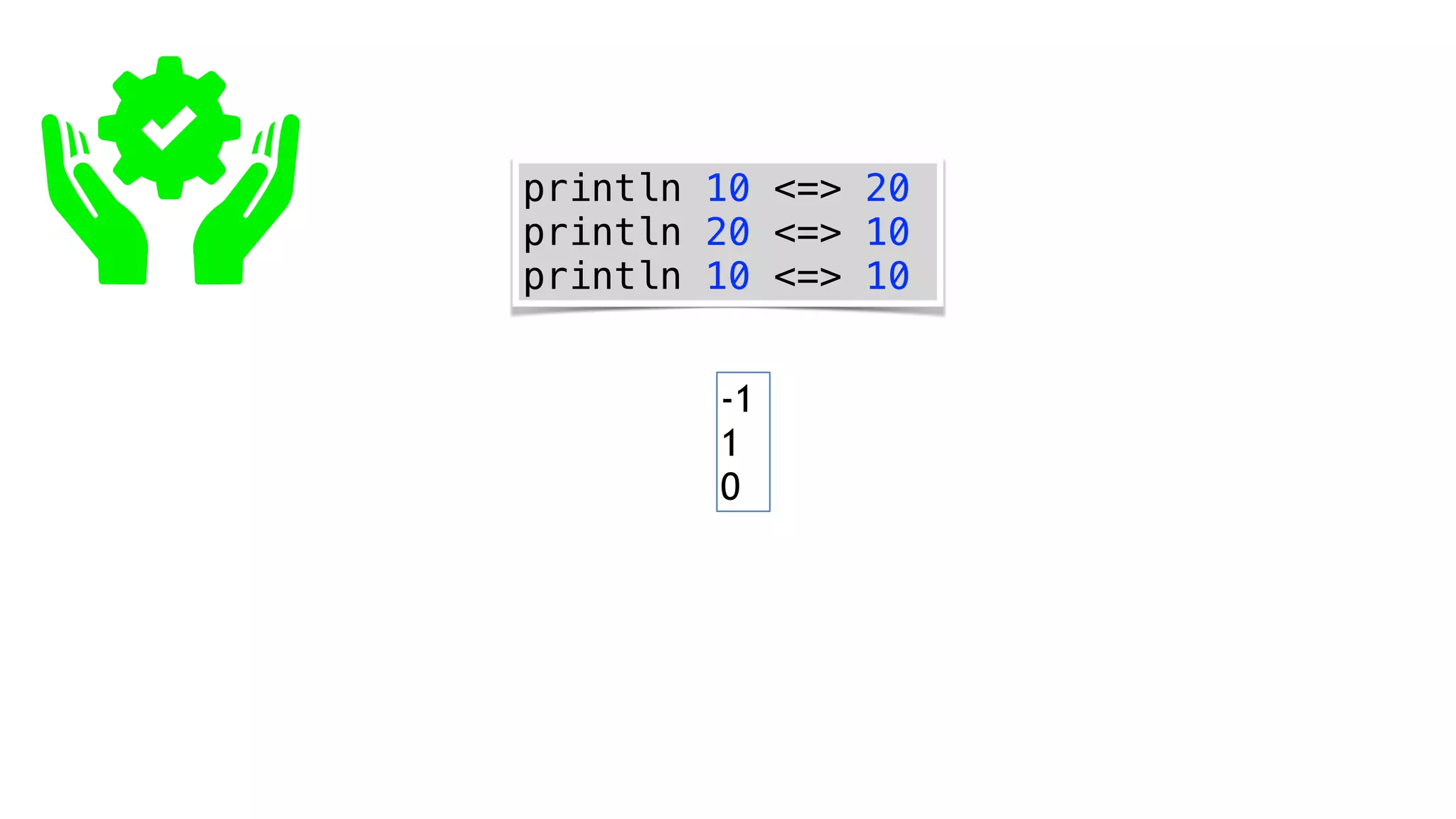

![geeks.sort(false)
Original:
[Person(Raj, 30),
Person(Leonard, 35),
Person(Sheldon, 32),
Person(Sheldon, 25),
Person(Penny, 35)]
Sorted:
[Person(Leonard, 35),
Person(Penny, 35),
Person(Raj, 30),
Person(Sheldon, 32),
Person(Sheldon, 25)]](https://image.slidesharecdn.com/gr8confeu2019effetivejavawithgroovy-190527135406/75/Effective-Java-with-Groovy-43-2048.jpg)
![geeks.sort(false) { a, b -> a.age <=> b.age}
Original:
[Person(Raj, 30),
Person(Leonard, 35),
Person(Sheldon, 32),
Person(Sheldon, 25),
Person(Penny, 35)]
Sorted:
[Person(Sheldon, 25),
Person(Raj, 30),
Person(Sheldon, 32),
Person(Leonard, 35),
Person(Penny, 35)]
Sort By Age](https://image.slidesharecdn.com/gr8confeu2019effetivejavawithgroovy-190527135406/75/Effective-Java-with-Groovy-44-2048.jpg)
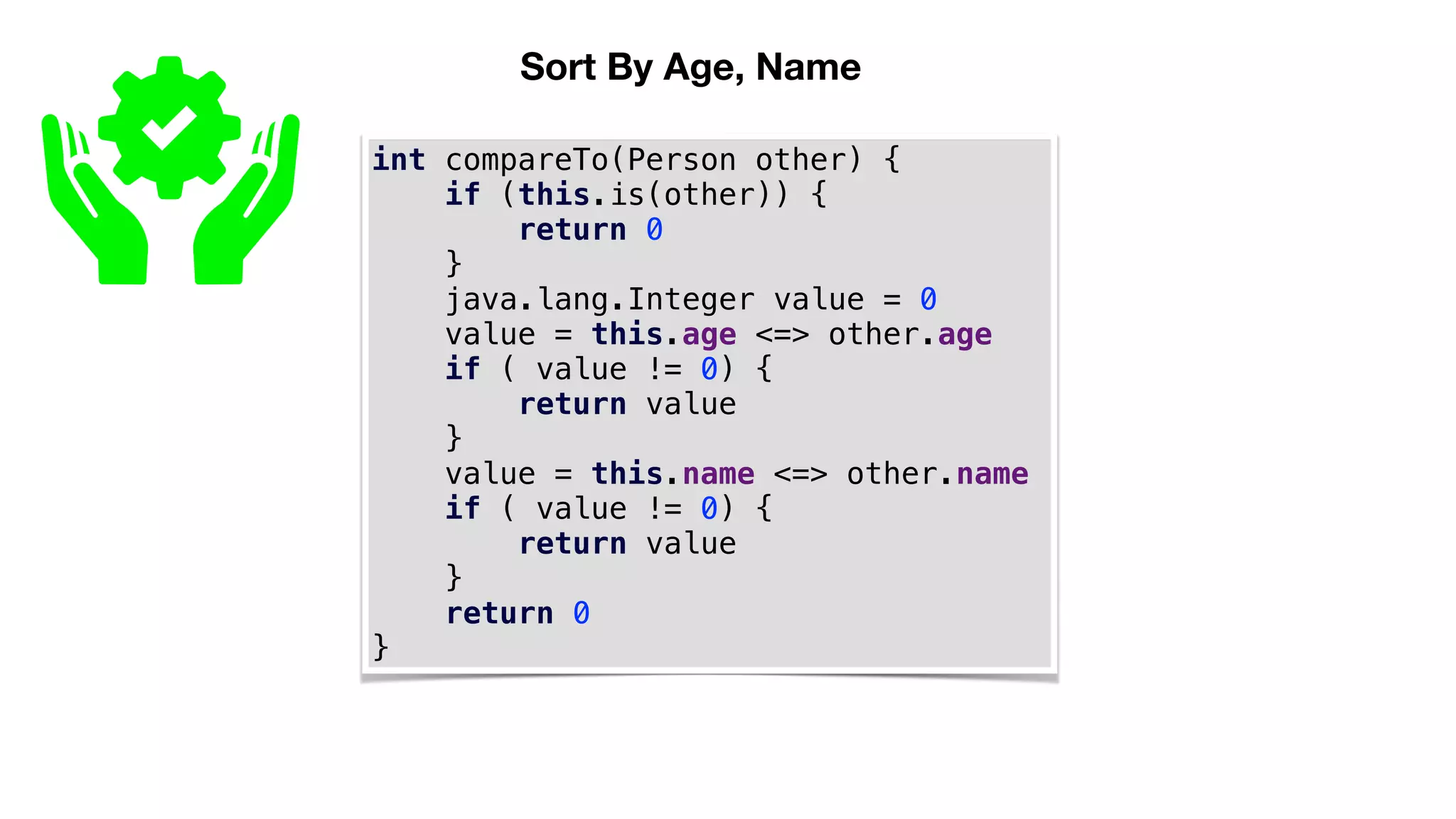
![geeks.sort(false, { a, b ->
[{it.age}, {it.name}].findResult { c ->
c(a) <=> c(b) ?: null
}
})
Original:
[Person(Raj, 30),
Person(Leonard, 35),
Person(Sheldon, 32),
Person(Sheldon, 25),
Person(Penny, 35)]
Sorted:
[Person(Sheldon, 25),
Person(Raj, 30),
Person(Sheldon, 32),
Person(Leonard, 35),
Person(Penny, 35)]
Sort By Age, Name](https://image.slidesharecdn.com/gr8confeu2019effetivejavawithgroovy-190527135406/75/Effective-Java-with-Groovy-46-2048.jpg)
![@ToString
@Sortable(includes = "age, name")
class Person {
String name
int age
}
Original:
[Person(Raj, 30),
Person(Leonard, 35),
Person(Sheldon, 32),
Person(Sheldon, 25),
Person(Penny, 35)]
Sort By Age, Name
Sorted:
[Person(Sheldon, 25),
Person(Raj, 30),
Person(Sheldon, 32),
Person(Leonard, 35),
Person(Penny, 35)]](https://image.slidesharecdn.com/gr8confeu2019effetivejavawithgroovy-190527135406/75/Effective-Java-with-Groovy-47-2048.jpg)
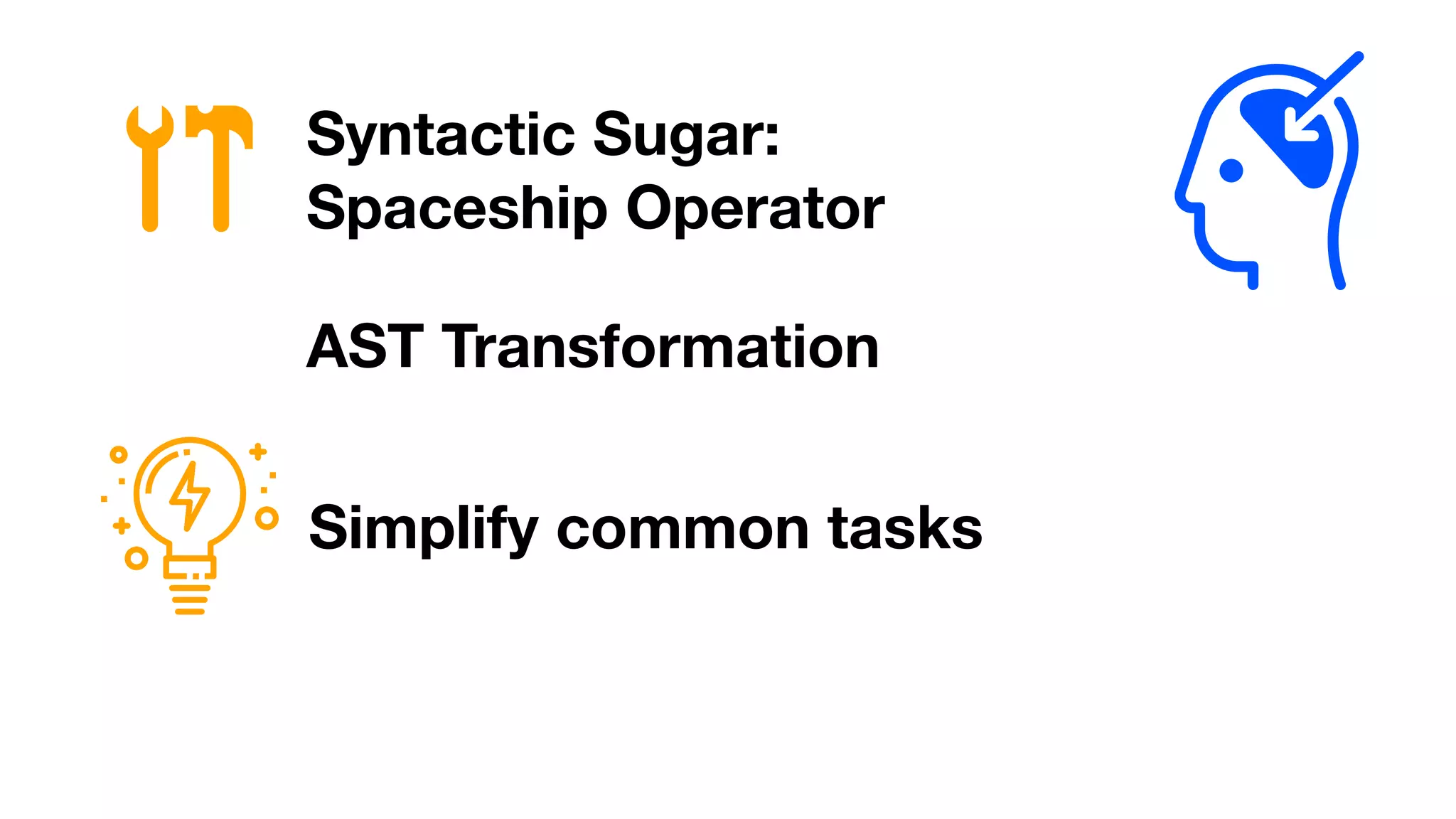


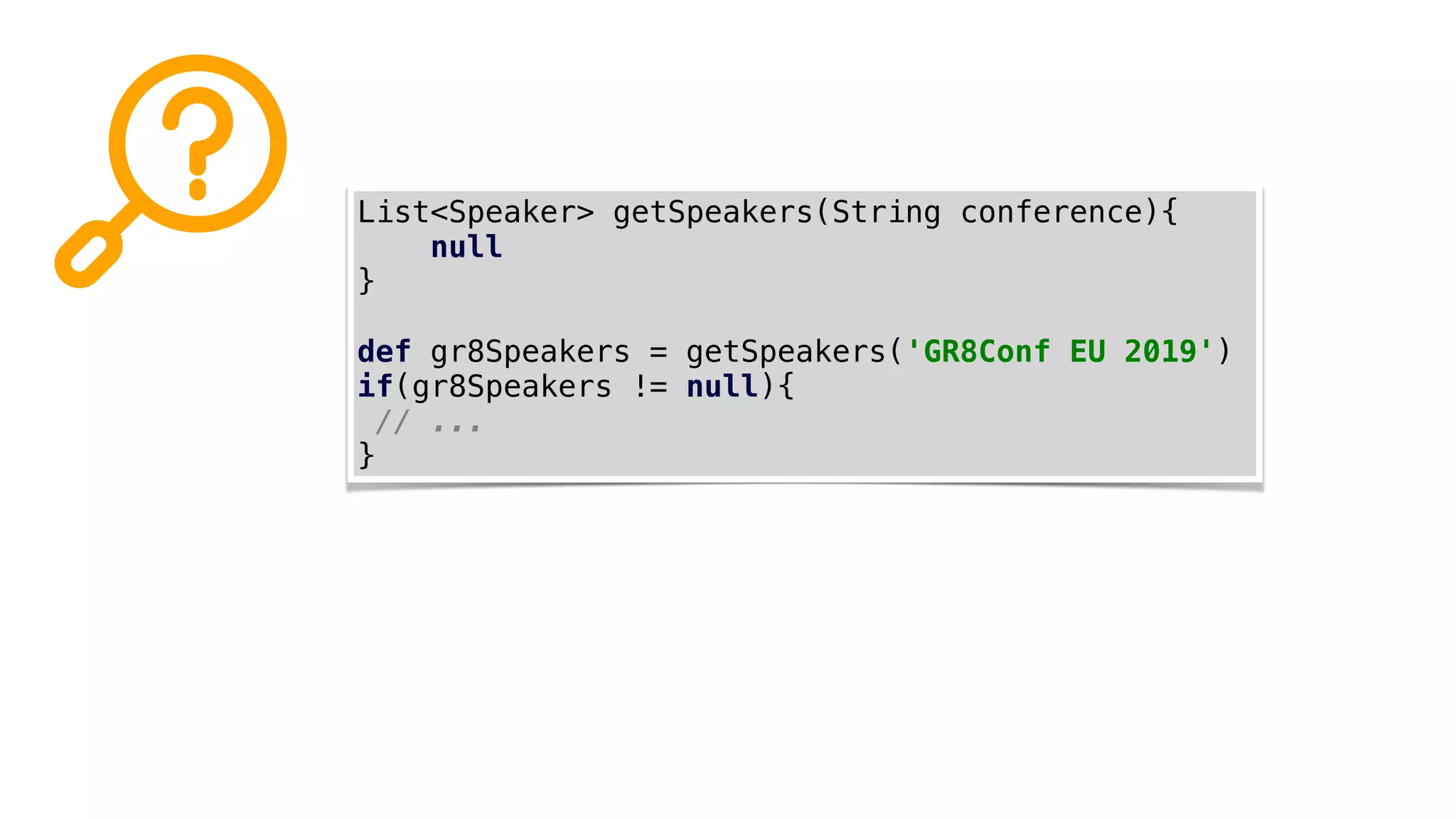
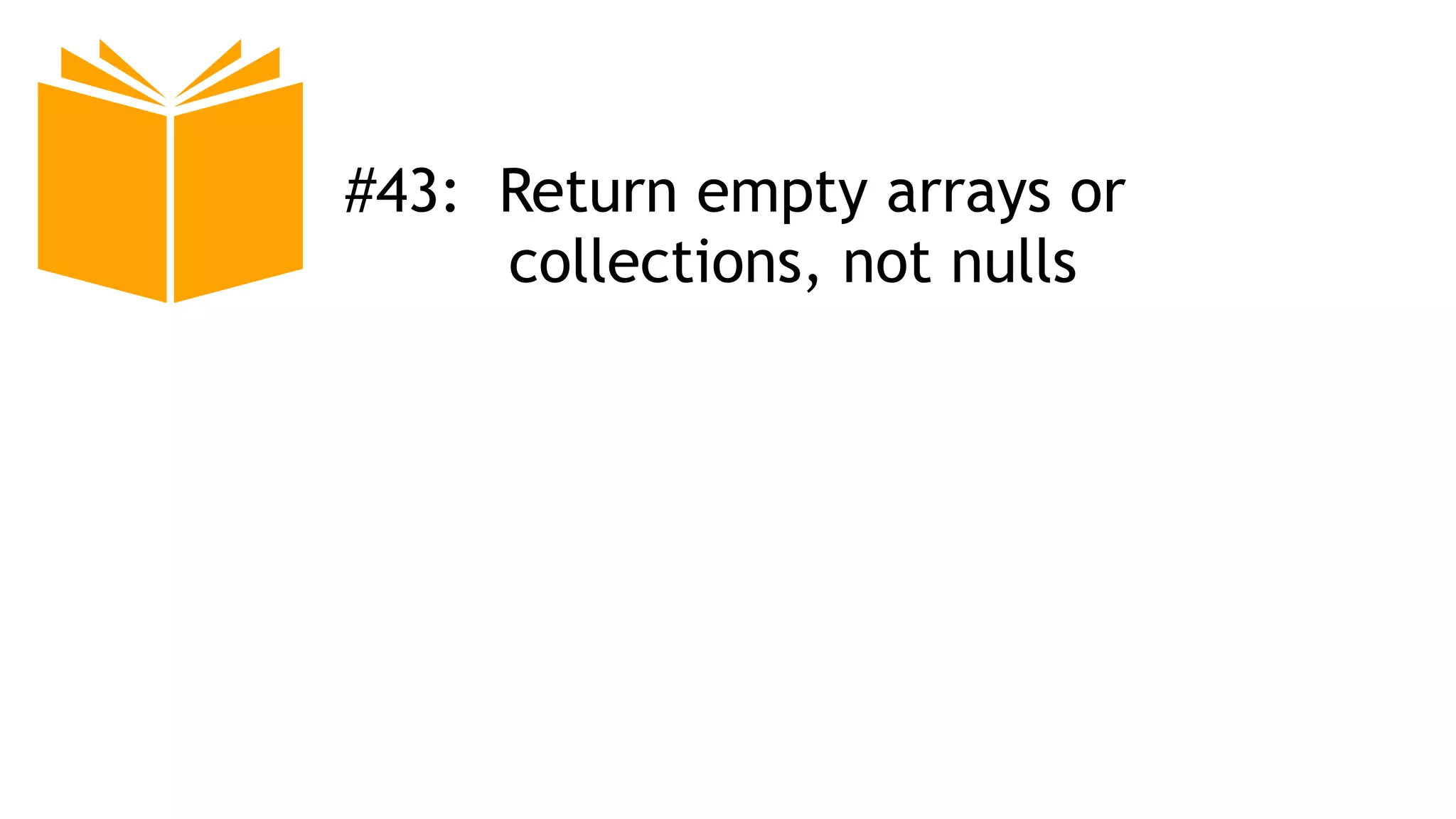
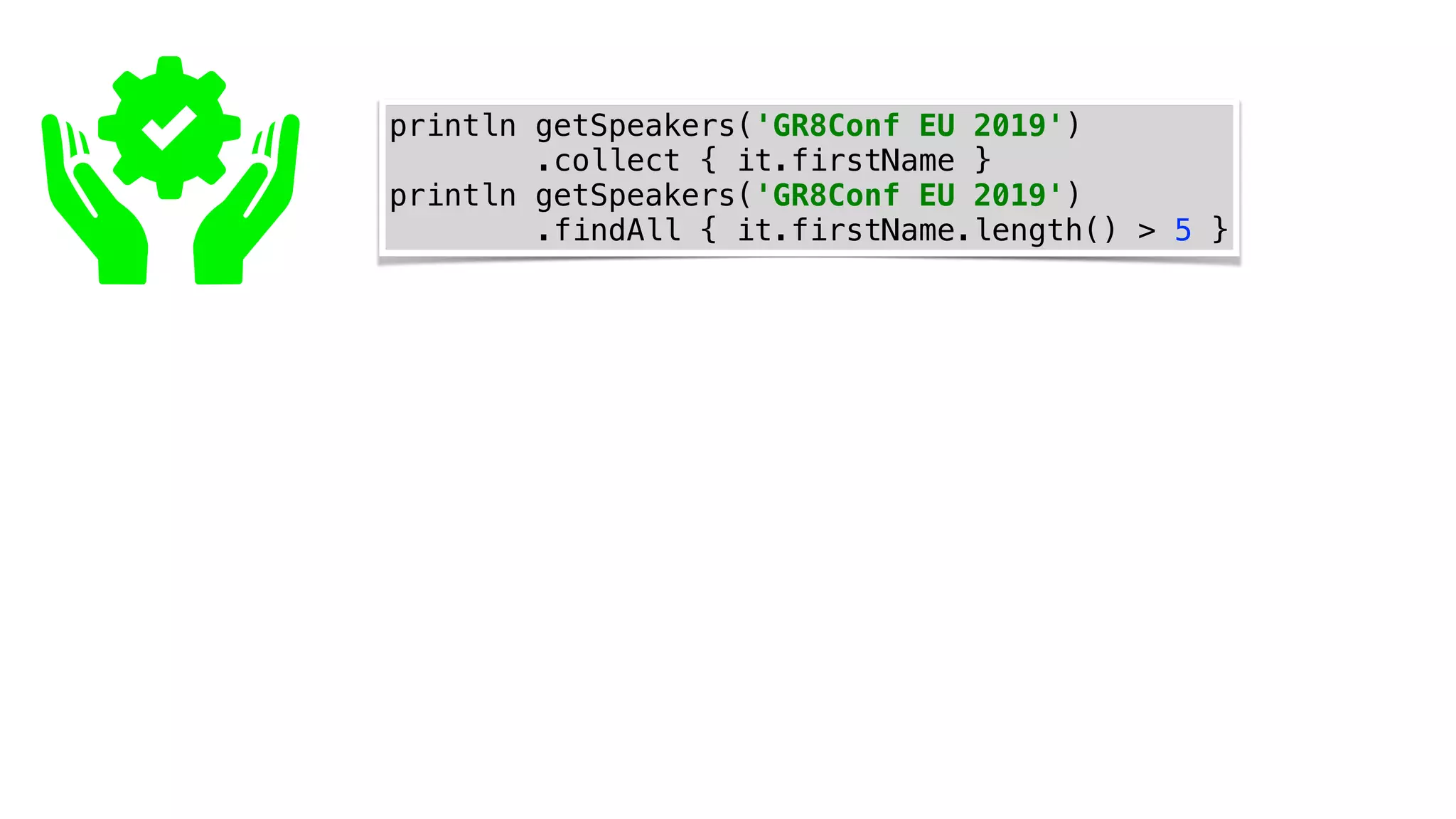
![println getSpeakers('GR8Conf EU 2019')
.collect { it.firstName } // []
println getSpeakers('GR8Conf EU 2019')
.findAll { it.firstName.length() > 5 } // []](https://image.slidesharecdn.com/gr8confeu2019effetivejavawithgroovy-190527135406/75/Effective-Java-with-Groovy-54-2048.jpg)

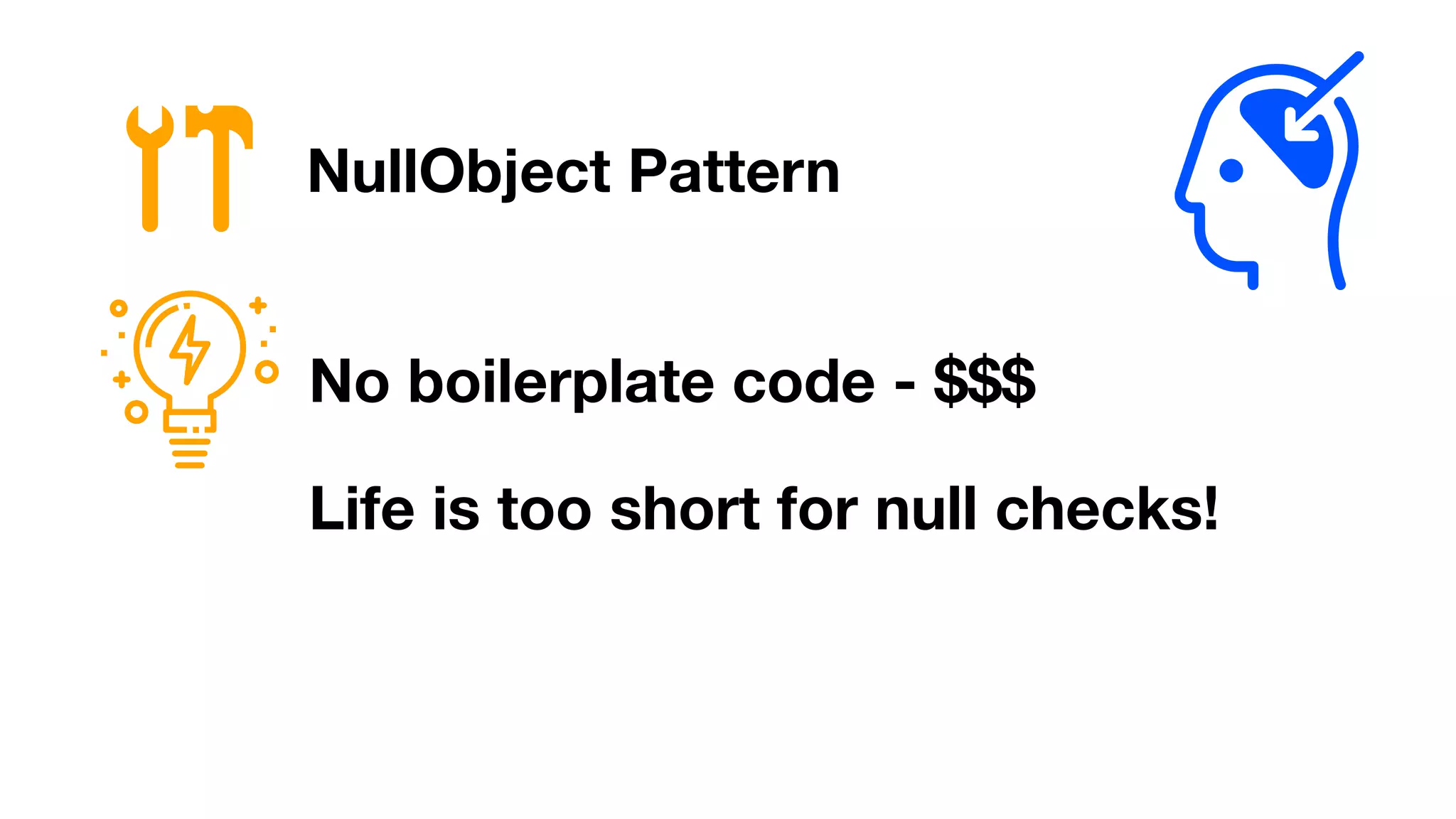


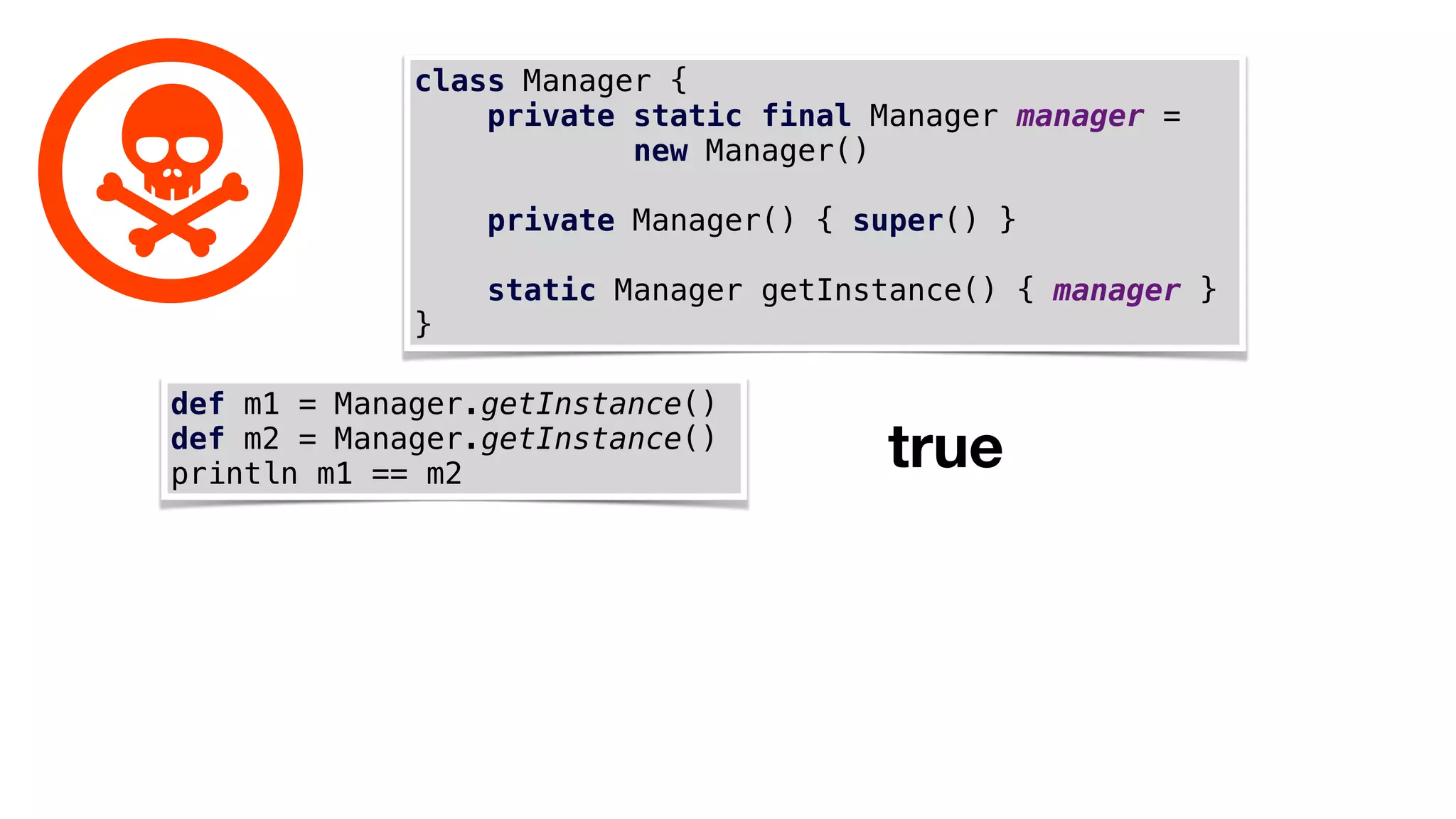
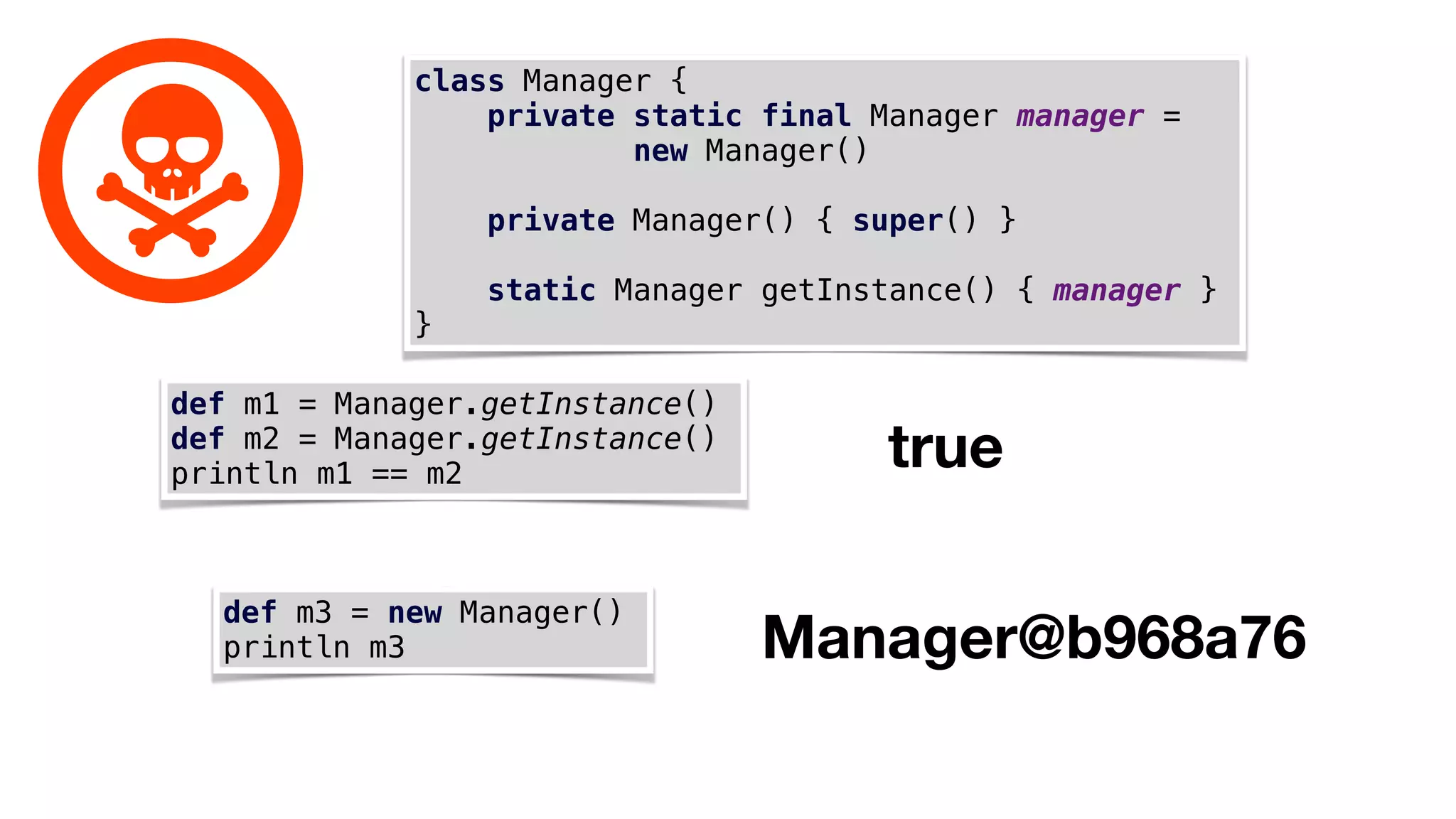
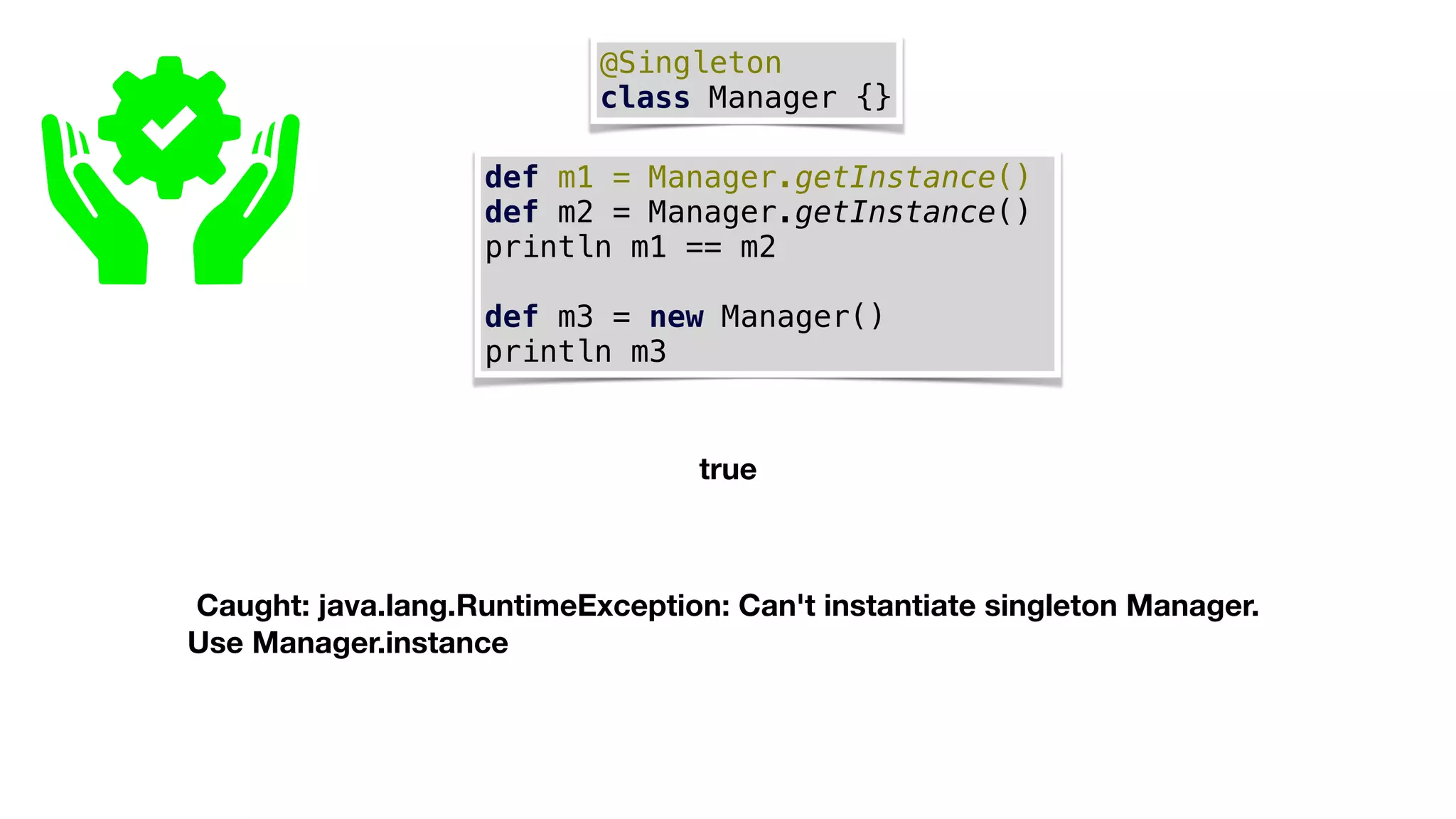
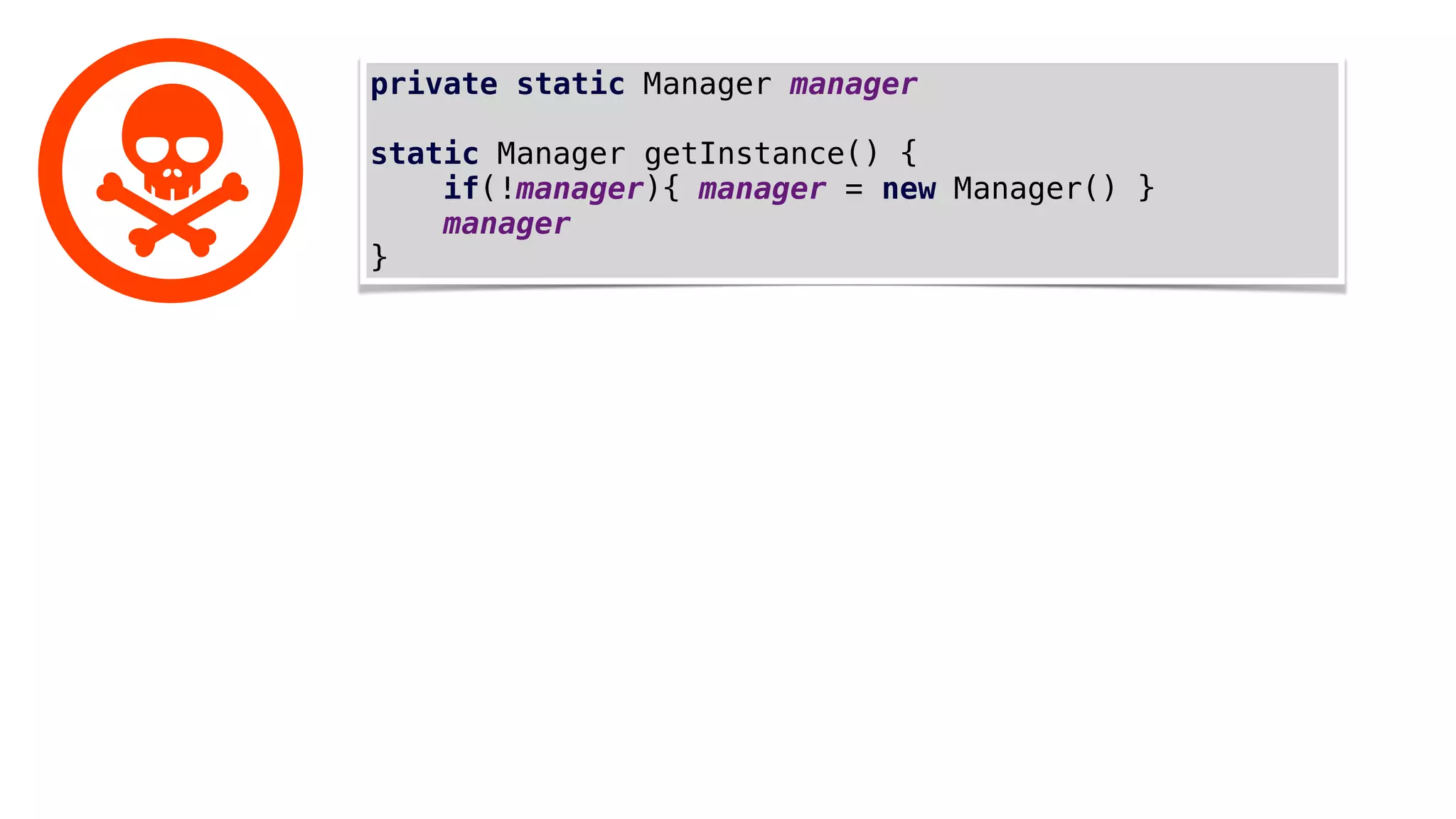
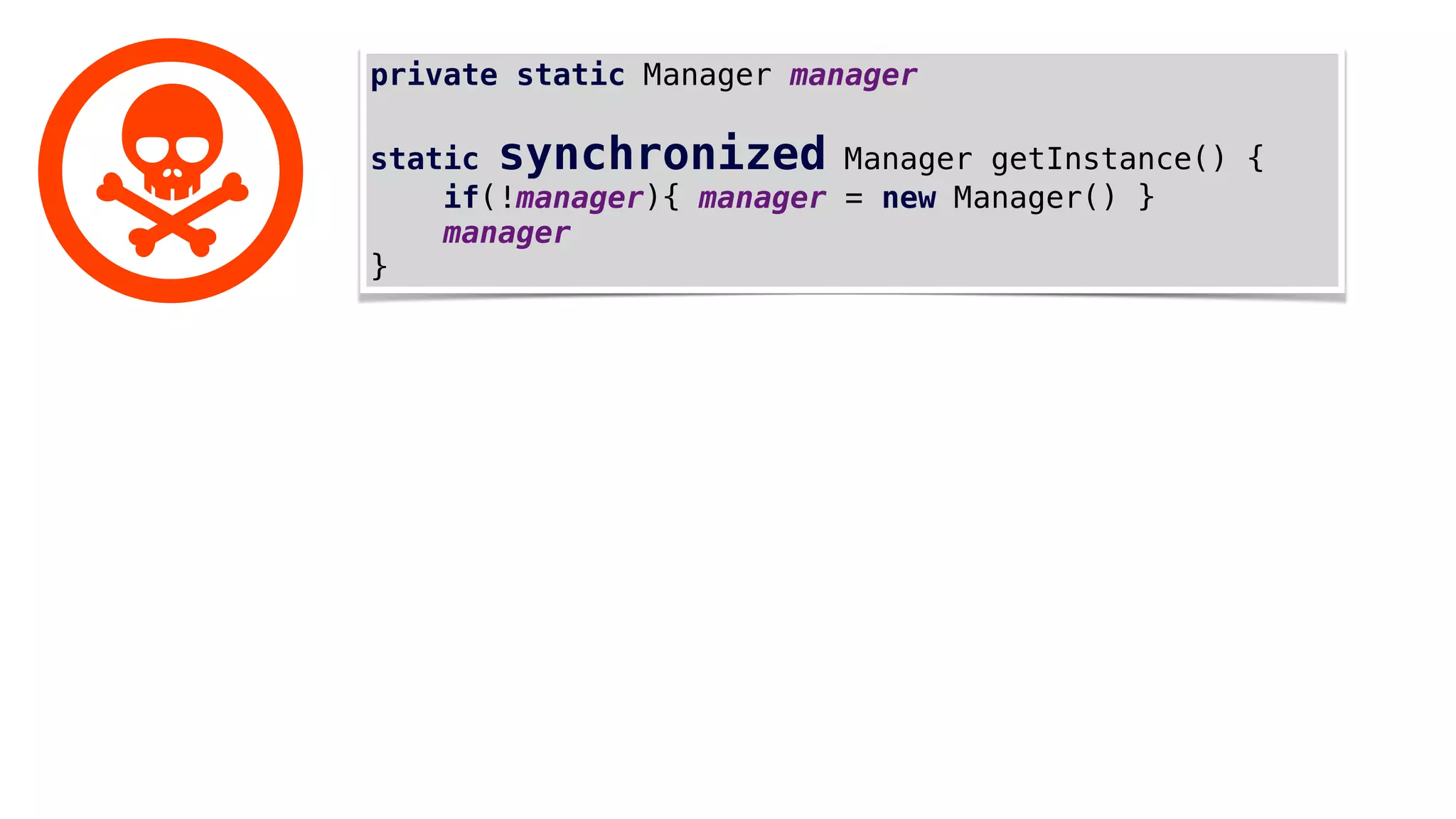
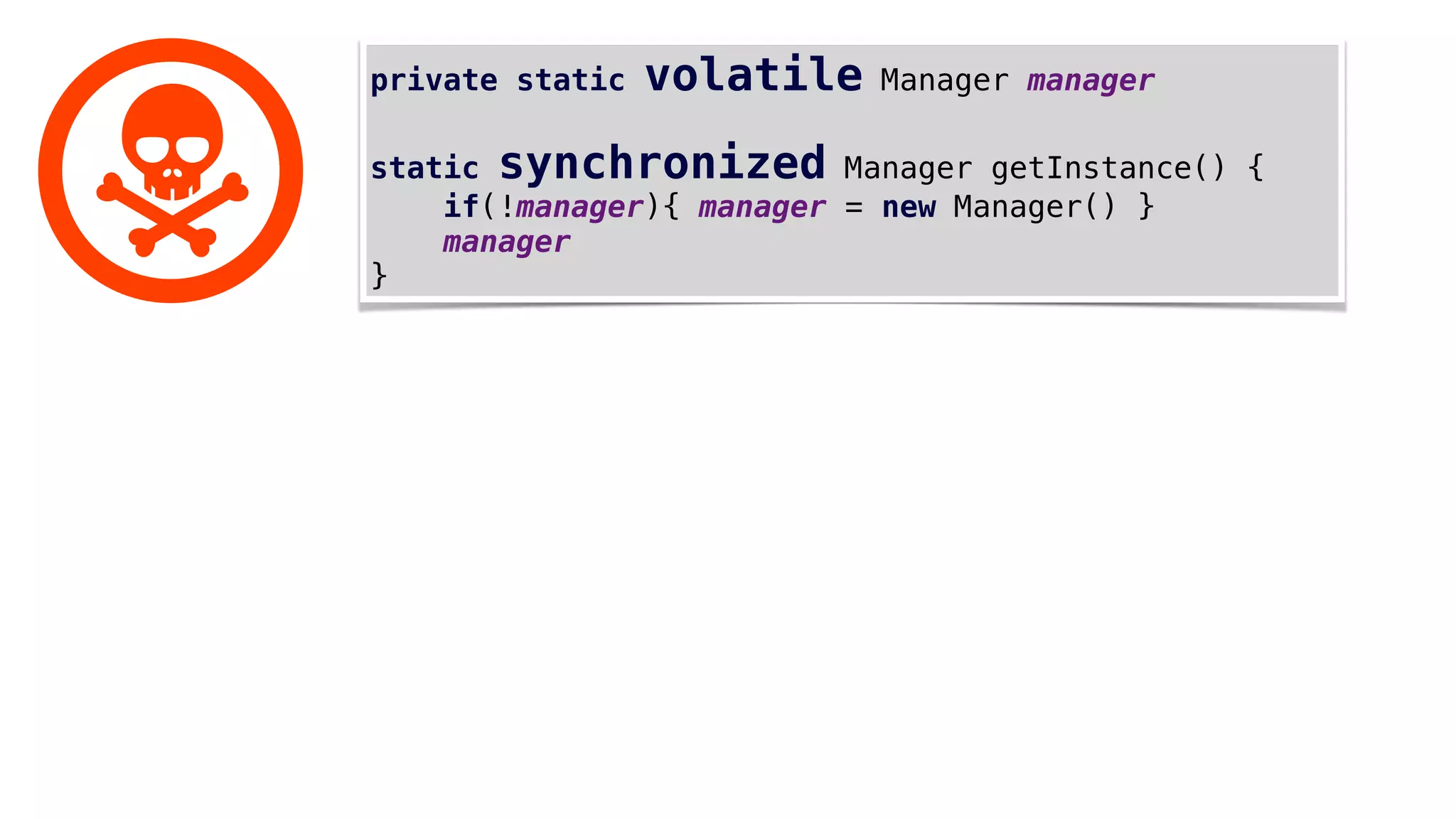
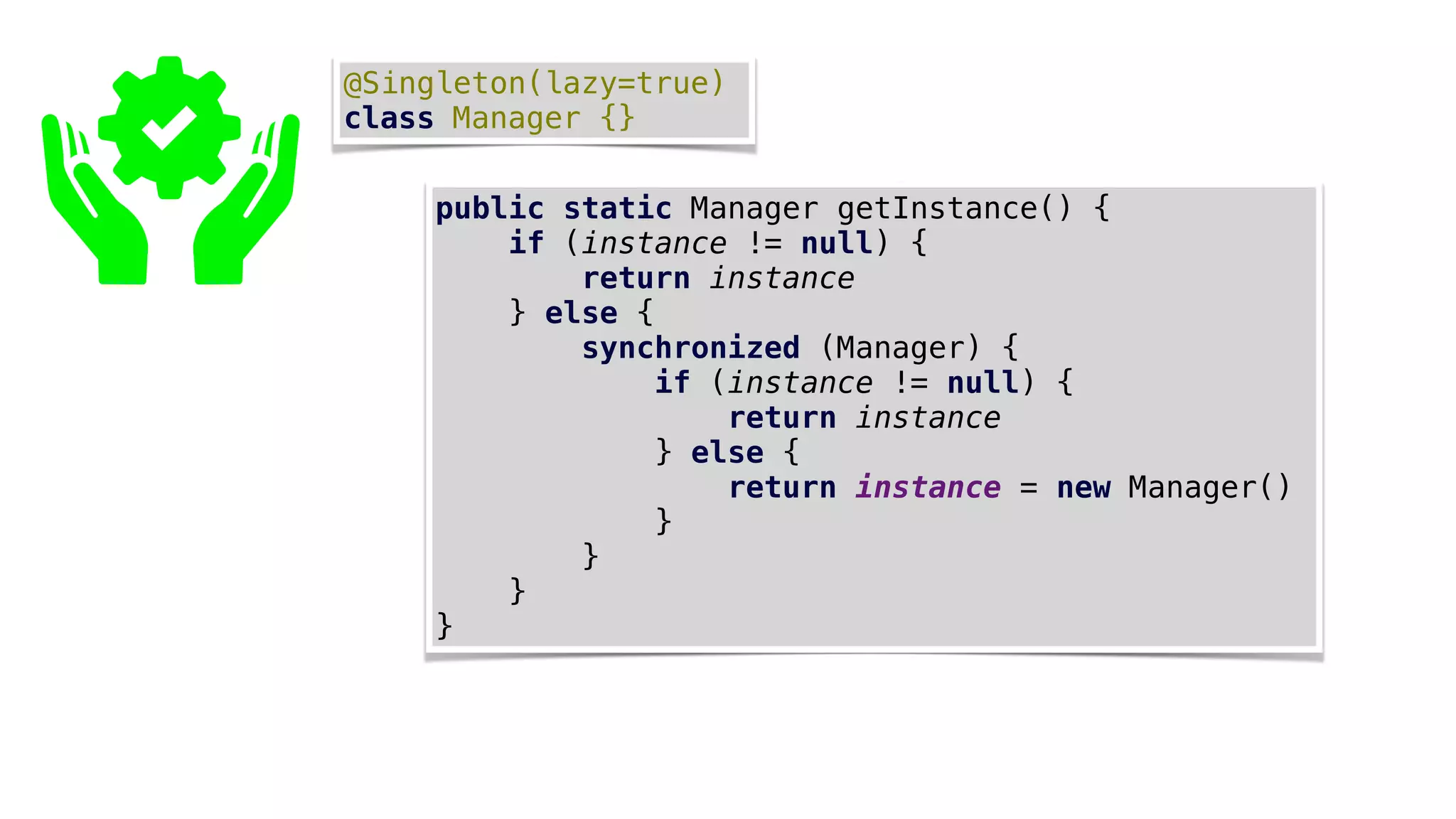
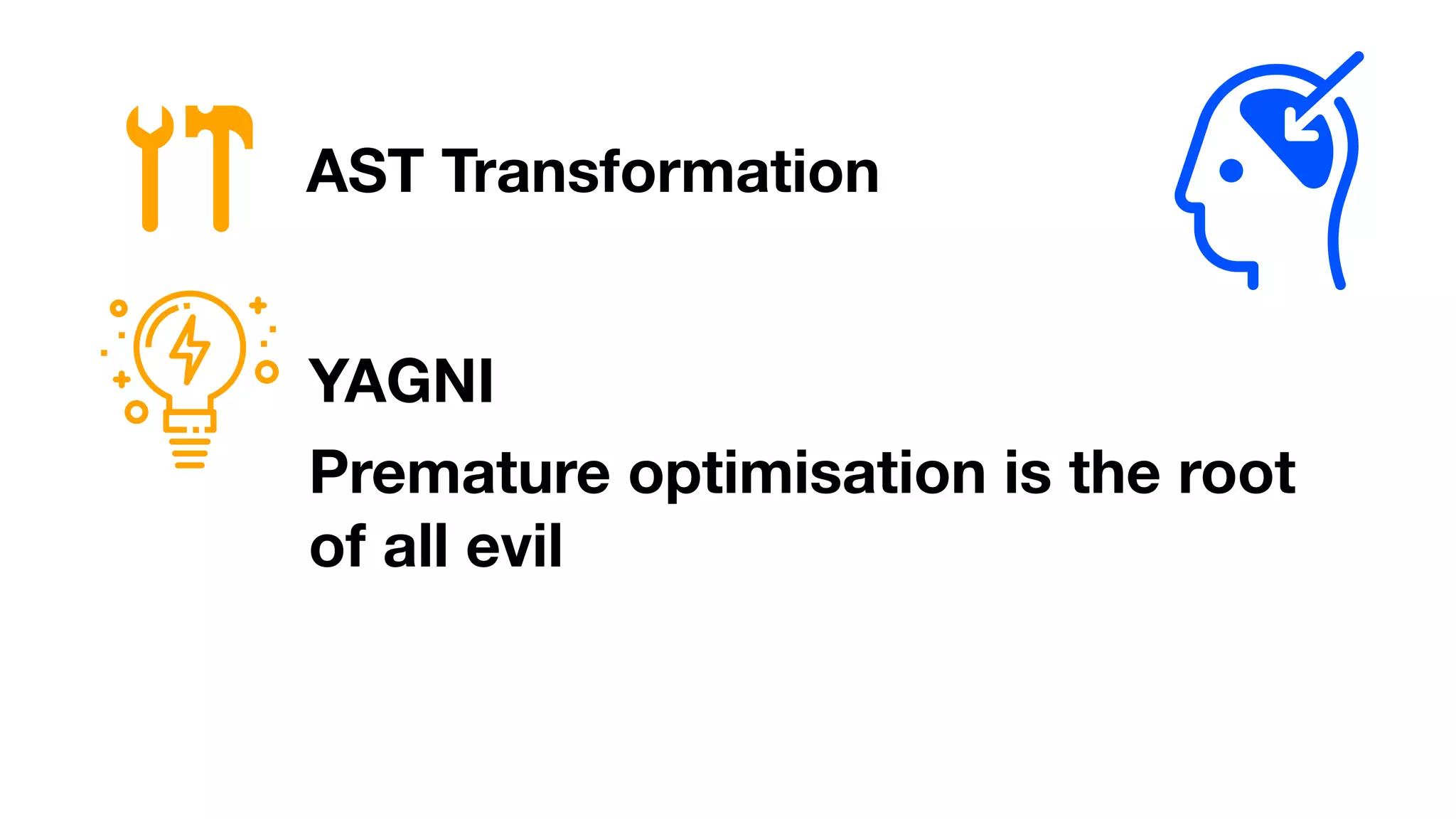


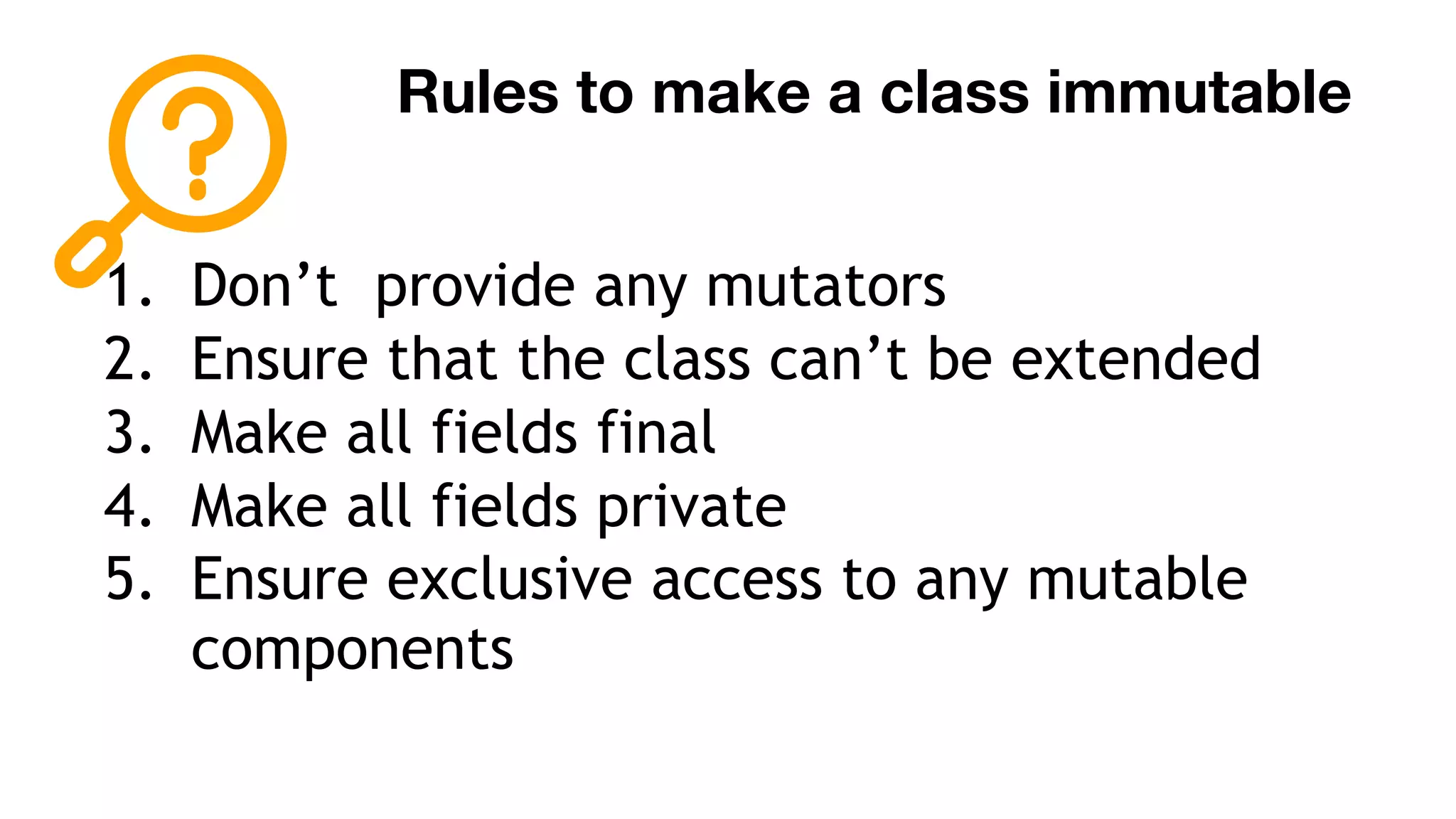
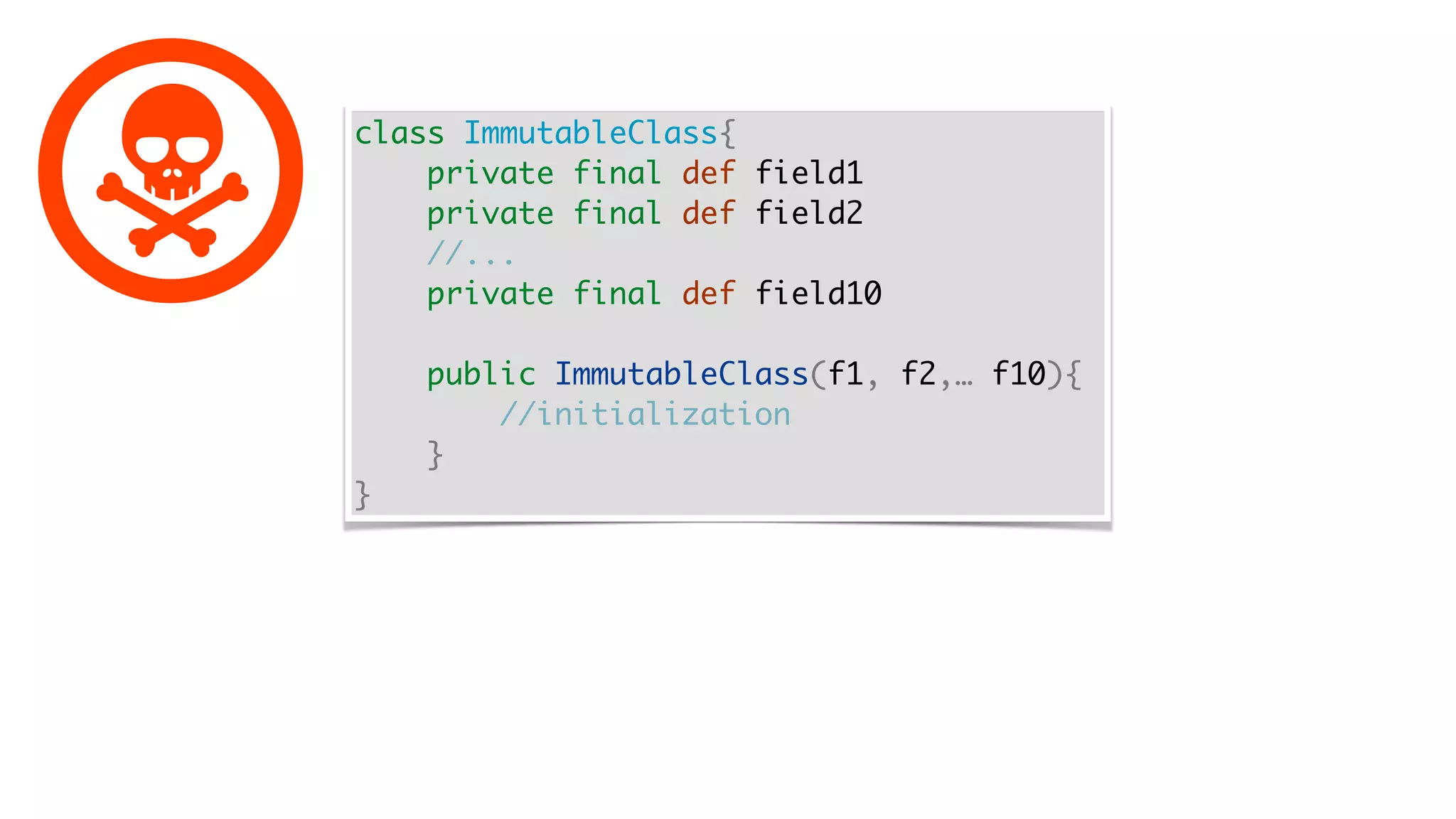
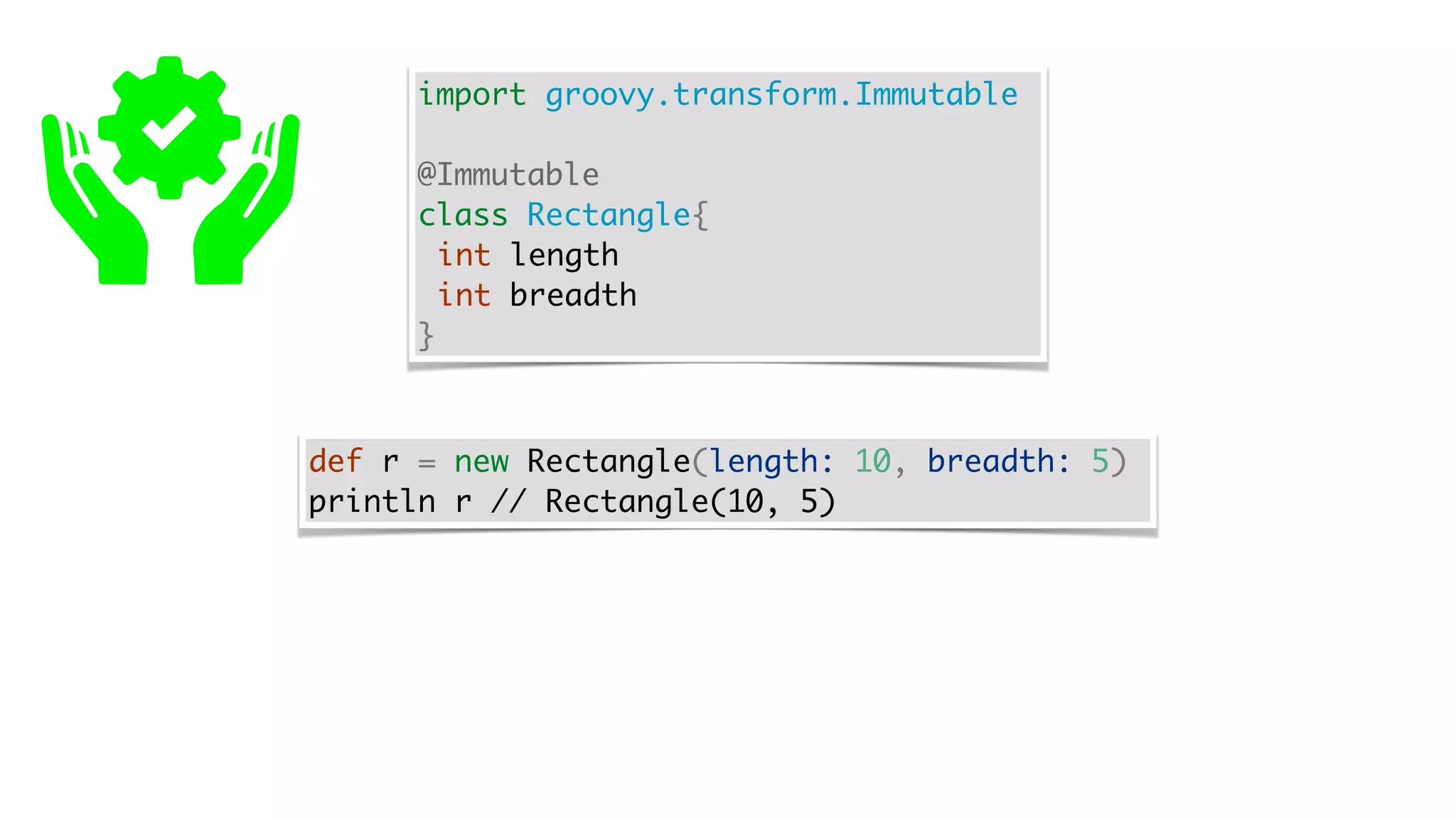
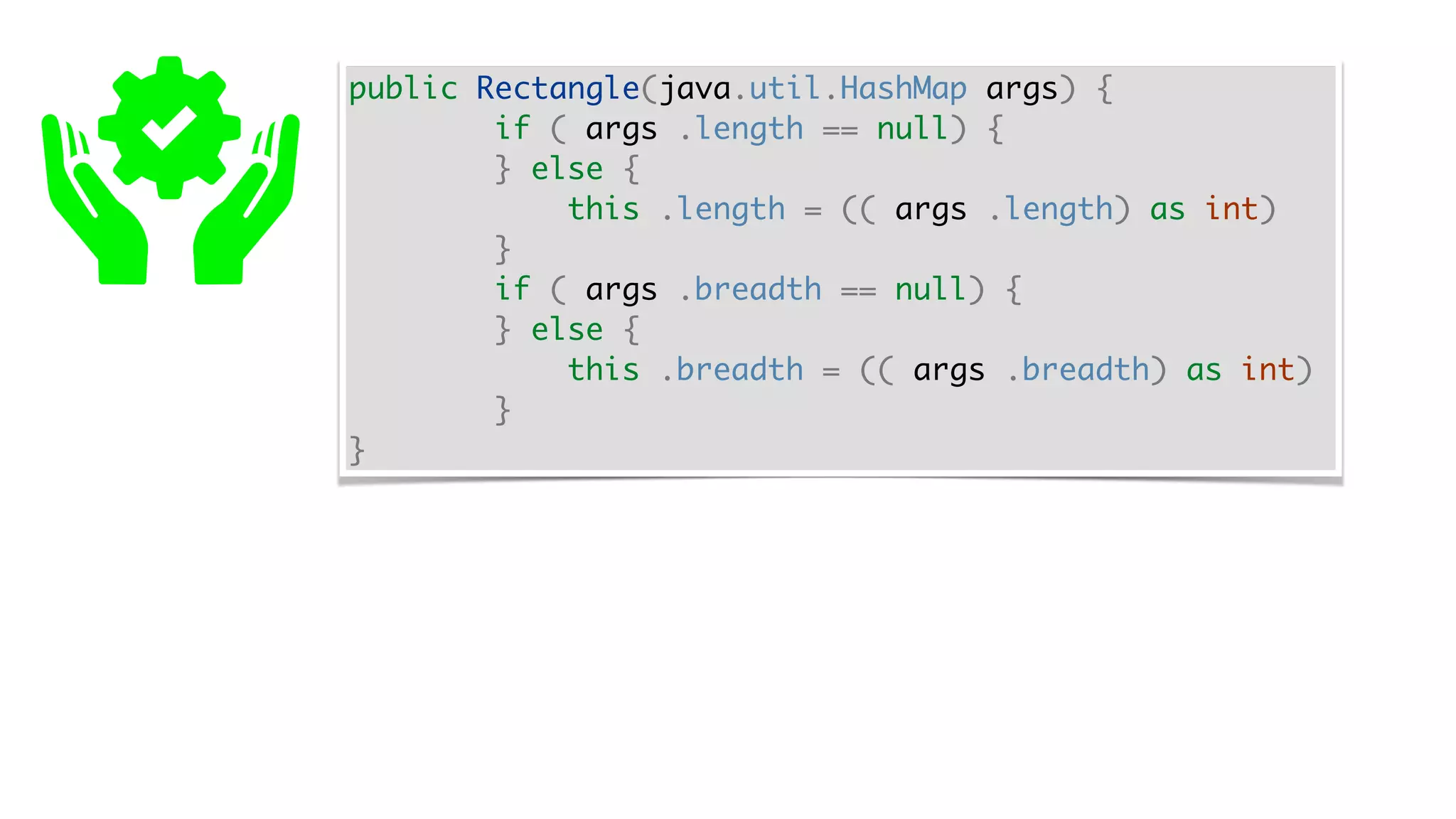



![def ph = ['919812312345', '4512341234', ‘19252199916']
as PhoneNumbers
println ph.find { it == '19252199916'}
println ph.findAll { it.endsWith('4') }](https://image.slidesharecdn.com/gr8confeu2019effetivejavawithgroovy-190527135406/75/Effective-Java-with-Groovy-76-2048.jpg)
![def ph = ['919812312345', '4512341234', ‘19252199916']
as PhoneNumbers
println ph.find { it == '19252199916'}
println ph.findAll { it.endsWith('4') }
println ph.indianNumbers()](https://image.slidesharecdn.com/gr8confeu2019effetivejavawithgroovy-190527135406/75/Effective-Java-with-Groovy-77-2048.jpg)
